Like my 2013 annual report this report is organized in two conceptually different strands with sporadic overlap. The main text recounts this year's events. The text discovered by clicking on an image recounts the contribution that each of the depicted individuals has made to my intellectual development. With some of the living I have had direct contact; others I know only because of what they have written. In both strands I have made an effort to group like with like. At times there appears a chronological consistency; at times there is none. Certainly many people and events have been left out for one reason or another.
The Idea of putting the two strands together is neither to make fun of the one at the expense of the other, nor to make one justify or embellish the other. Rather, it is an attempt to protect my own sanity against the harsh and very real contradiction that I and others before me have faced -- repeated rejection by those who show their paper and claim to be knowledgeable and those who are truly knowledgeable, but do not have the "relevant" paper to show.
Hopefully, at times there is even a ray of insight and humor. One may wonder how it can all fit into one head in an orderly fashion, but it is the "miracle" that I am, and I make no apologizes for it.
Table of Contents
- A Year of Persistent Struggle
- My Last Term at KAU
- An Exhaustive Journey Through Imperial Space
- A Missing Travel Agent
- An Object of Government Harassment
- Auburn, Alabama -- The Ludwig Von Mises Institute
- Berkeley, California -- The French Hotel
- Portland, Oregon - A Day's Worth of Interviews and the TSA
- London, England - LIghtning Rods Keep Us Safe
- In Search of Employment
- Jeddah, KSA - The Unfortunate Tale of a Migrant Worker
- Riyadh, KSA - The Writing Was on the Wall
- Abha, KSA - Waiting for Godot?
- Uozu-shi, Toyama-ken, Japan - Never Again!
- Bureaucratic Struggle
- The Lone Ranger
- Knock, Knock. I am here again!
- An Ancient Greek Lifestyle in the Heart of Islam
- What Goes Around Comes Around
- Body - A Healthy Body Nurtures a Strong Mind
- Mind - What Makes Us Dffierent from Other Living Things
- A Man, Two Boys, Another Man, Several Rocks, a Stick, and a Crowbar
- A Man With a Rock
- A Boy With a Rock and Another with a Stick
- A Man with a Crowbar
- Ushering in the New Year
- Resolution
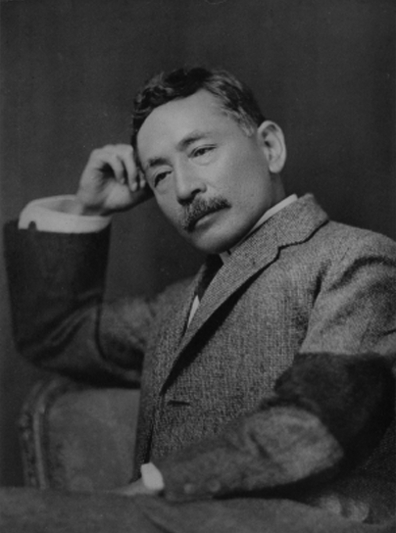 And, still again, I finish the old year and begin the new without employment. Last year appears to have been a fluke, and this year has confirmed the trend. Something is going to have to break very soon, either I or the trend, because the latter has begun to wear heavily on my spirit.
And, still again, I finish the old year and begin the new without employment. Last year appears to have been a fluke, and this year has confirmed the trend. Something is going to have to break very soon, either I or the trend, because the latter has begun to wear heavily on my spirit.
I save, albeit in a currency with no future. And, what is the use of investment? I simply do not have enough savings to have the option to buy and sell at my own discretion. My circumstances dictate. I have become the Sisyphus that I described already two years back. I save only to watch what I have put aside evaporate as I struggle to survive in search of new employment.
My friends tell me that I should start my own school, and then I could do the hiring instead of being hired. Well, I probably could, but this would require commitment to a permanent location, likely marriage to insure my right to property, and all of this in an industry that I have sought much of my life to dismantle. In any case, I have discovered a more pressing need, a much larger enemy of which the English language industry is merely a symptom -- the state and all of its imperial trappings.
If asked to characterize this year in a few words, I would reply "self-defense and bureaucratic struggle". It has not been an easy or particularly joyful year, but I have experienced worse. And yes, it has not been without some positive accomplishment. And so, I will begin.
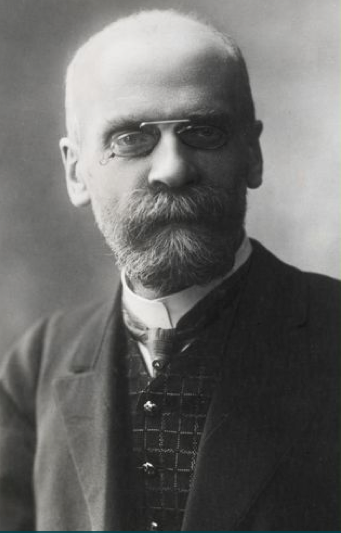 The year started with an incredibly bad fall on a tread mill. Three-quarters of the way through my routine a shoelace came undone, and I stepped on it with the other foot. It was enough to knock me off balance. Gravity and the rotating tread took care of the rest. Once fallen, the natural reaction is to get back up. This I did twice, but each time the rapidly moving tread through me back down. From the knees down both legs turned bright red. The pain was excruciating, and good common sense told me to get off the mill.
The year started with an incredibly bad fall on a tread mill. Three-quarters of the way through my routine a shoelace came undone, and I stepped on it with the other foot. It was enough to knock me off balance. Gravity and the rotating tread took care of the rest. Once fallen, the natural reaction is to get back up. This I did twice, but each time the rapidly moving tread through me back down. From the knees down both legs turned bright red. The pain was excruciating, and good common sense told me to get off the mill.
I discovered the problem, tied my shoelace, and finished my run. When I finished, everyone around me stared in disbelief including a supervising trainer who offered words of admonishment, but no first-aid. I returned to the gym the next day with uncovered wounds still wet with blood -- this, despite my having attended to them the day before upon returning home.
I now understand the purpose of the safety wire, but understand better the importance of secure shoe laces and an occasional look down to make sure that nothing is coming undone. I have not fallen since, and am now running faster. I have also since moved to a new branch of the same gym, but the move is unrelated to the fall.
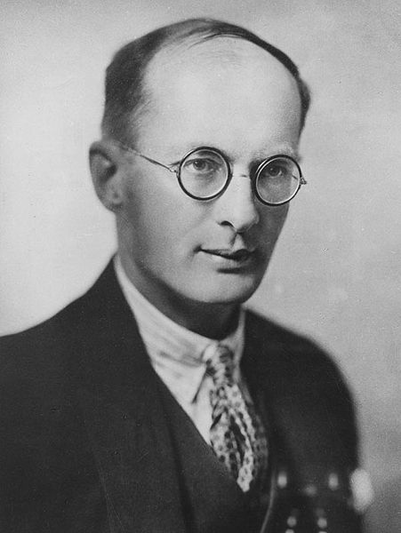
When we returned from vacation, the chairman of my department handed me a key to another's office and told me that it was mine. Though I was instructed not to remove the name of the professor who now occupied the chairperson's second office, the office was, for all practical purposes, mine unto me. I could come and go as I pleased without having to worry about who would be present when I arrived, and what sort of work I would not be able to accomplish while there. Planning my daily schedule suddenly became a whole lot easier as well.
Maybe it was appreciation for my effort with regard to the student language club during the previous term. Maybe it was just a nice way to say good-bye. For, it was pretty much clear that I would have to leave the university at the end of the academic year. At least there was no sign that my one-year contractual extension without a contract would be further extended.
If there were trouble, then it was with my classroom assignments, as none of the wireless and wired networks appeared to work or work very consistently. What is more, I was now teaching in four different buildings at some distance from one another rather than in my usual two or three. Obtaining reliable and timely IT service was simply not in the cards. I dared not leave my office without preparation for both traditional white-board and electronic instruction and made it a habit to arrive earlier than usual so as to leave time for experimentation with electronic set-up. In one building it was like "musical classrooms" for the entire term!
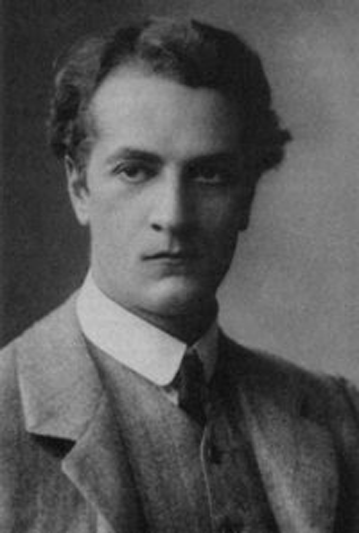 One day while passing by the student activities center I was approached by a student advisor and asked why I had never gotten back to him about the student language club. Apparently he had not received the copy of a report that I had sent him from the previous term. While in discussion he asked me, if I would teach a course in Japanese to a small group of KAU students who were interested in Japan. I told him that I had never done it before, but would do so, if the students would be patient with my lack of experience. By the end of the summer I had mastered Adobe Illustrator's brush strokes, had rediscovered Apple's Japanese character palate, and was teaching my student's how to write in Japanese on an overhead screen.
One day while passing by the student activities center I was approached by a student advisor and asked why I had never gotten back to him about the student language club. Apparently he had not received the copy of a report that I had sent him from the previous term. While in discussion he asked me, if I would teach a course in Japanese to a small group of KAU students who were interested in Japan. I told him that I had never done it before, but would do so, if the students would be patient with my lack of experience. By the end of the summer I had mastered Adobe Illustrator's brush strokes, had rediscovered Apple's Japanese character palate, and was teaching my student's how to write in Japanese on an overhead screen.
When I quit Facebook later in the year and turned to Twitter, I discovered my good friend Koshikawa Takafumi and initiated an effort to return to Japan.
An Exhaustive Journey Through Imperial Space
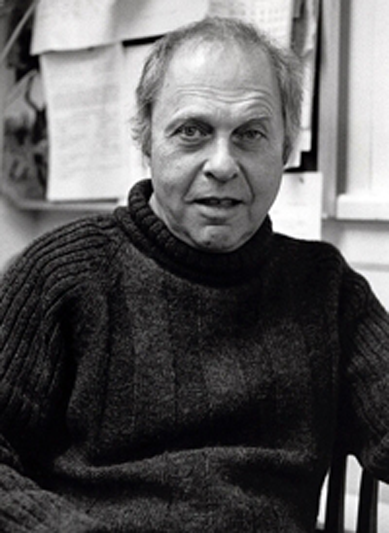 It was spring, and I wanted to make good on my intentions of the previous year. Upon my arrival at the university's office in charge of travel I discovered that the travel agency hired by the university had changed, and that the new agency knew nothing about a deposit that I had left with the old. After more than two hours of travel and inquiry I finally discovered the location of the previous agency -- this, despite my having kept a telephone record of two of the three agents that had handled my deposit. Even the contact information provided on the agency's webpage did not yield a return call. Neither a physical address, nor a location map was provided. I finally discovered the agent's location through visits to other travel agents who, I thought, would know their competition.
It was spring, and I wanted to make good on my intentions of the previous year. Upon my arrival at the university's office in charge of travel I discovered that the travel agency hired by the university had changed, and that the new agency knew nothing about a deposit that I had left with the old. After more than two hours of travel and inquiry I finally discovered the location of the previous agency -- this, despite my having kept a telephone record of two of the three agents that had handled my deposit. Even the contact information provided on the agency's webpage did not yield a return call. Neither a physical address, nor a location map was provided. I finally discovered the agent's location through visits to other travel agents who, I thought, would know their competition.
Upon my eventual arrival at the agent's Jeddah headquarters I was told that I would have to come back on the following day. Apparently, the office in charge of deposits was closed. I returned as told, sat, and waited while several others who had arrived after me were given priority. It was the accusation from behind the ticket counter that someone had stolen money that caused me to decide that I had had enough. So, I intervened, inquired about the office responsible for my deposit, and proceeded straight away. While waiting for the office to process the return of my deposit I witnessed the agency's internal operations. Telephone call after telephone call went unanswered. Should I have been surprised? When it came time for me to retrieve my deposit and was told that a portion of it would not be returned, I stood in outrage and demanded to see the general manager. After a long and very pleasant discussion he had my deposit returned in full. The person who had originally denied me was not pleased that his decision had been overridden by his boss. Unfortunately, he had not followed proper procedure -- apparently such really exists!
I left the agency with mixed feelings and decided to try booking on my own. I had more to learn and much more awaited me. Perhaps next time I go to book, I will renew my acquaintance with the general manager.
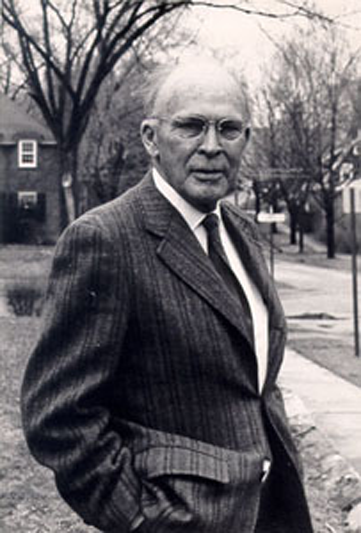 After waiting in line for a good thirty minutes at the Jeddah International Airport I arrived at the security counter where passports are examined. Upon presentation of my documents I was asked to step aside. Others were allowed to pass. Several minutes passed, before I was asked to go to another counter where all of the fingers of both of my hands were photocopied and registered one by one and handfuls at a time. All of this proceeded in the public eye; it was not as if I had blended in with the crowd in which I was standing. I was being made to feel like a criminal, and no reason for my embarrassing treatment was given. The English of the immigration officer taking my finger prints was sufficient for his task, but insufficient for my need. In any case, I did not have time to take the matter to a higher level and determine more clearly why I had been singled out. My plane was about to depart. I was leaving Saudi Arabia with a round-trip ticket and a fully documented entry-and-exit visa. Moreover, my Saudi sponsor was a major national university, and I held a residence card that had been twice renewed without a glitch. Things simply did not add up.
After waiting in line for a good thirty minutes at the Jeddah International Airport I arrived at the security counter where passports are examined. Upon presentation of my documents I was asked to step aside. Others were allowed to pass. Several minutes passed, before I was asked to go to another counter where all of the fingers of both of my hands were photocopied and registered one by one and handfuls at a time. All of this proceeded in the public eye; it was not as if I had blended in with the crowd in which I was standing. I was being made to feel like a criminal, and no reason for my embarrassing treatment was given. The English of the immigration officer taking my finger prints was sufficient for his task, but insufficient for my need. In any case, I did not have time to take the matter to a higher level and determine more clearly why I had been singled out. My plane was about to depart. I was leaving Saudi Arabia with a round-trip ticket and a fully documented entry-and-exit visa. Moreover, my Saudi sponsor was a major national university, and I held a residence card that had been twice renewed without a glitch. Things simply did not add up.
When I arrived in Manna, Bahrain, for my transfer flight to Paris nothing extraordinary occurred. I was treated as were the other passengers. In Paris, though, another story awaited me. It is there where the pieces of the puzzle fell better into place.
Upon presenting my passport at the American Airlines boarding gate to Miami I was once again asked to step aside. This time, I was interrogated by a specially clothed agent who actually knew, not only the contents of my carry-on luggage, but also those of the luggage that I had checked in!
Indeed, is it so unusual for a traveler to carry formal attire and an empty back-pack for hiking in the same bag of luggage? Was it really necessary that I explain the purpose of the back-pack? Was this any way to treat an American citizen returning to his homeland to attend a professional conference and visit with friends? And, even if there were genuine grounds for suspicion -- grounds that I can hardly imagine --, why wait for the interrogation until just before I board my plane?
If this was not harassment, then how else is it to be explained? And, why? Because my loyalty is to the US Constitution and not the ruling elite? Truly, I do not know the answer, but there was more to come.
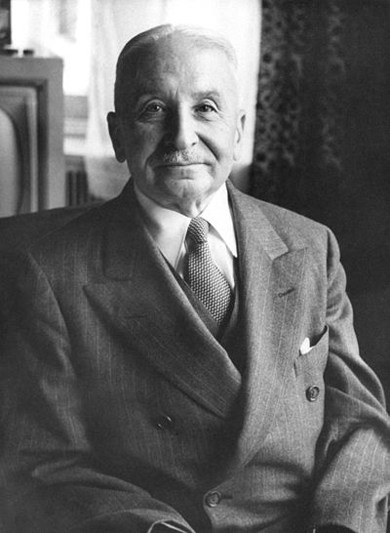 In early February I learned that the paper that I had prepared for presentation at the Austrian Economics Research Conference (AERC) at the Ludwig von Mises Institute in Auburn, Alabama had been rejected. I had to decide whether I would attend anyway. As the planned trip to the United States was not just about the AERC, I continued as planned. Besides, I wanted to meet the people who had rejected my paper!
In early February I learned that the paper that I had prepared for presentation at the Austrian Economics Research Conference (AERC) at the Ludwig von Mises Institute in Auburn, Alabama had been rejected. I had to decide whether I would attend anyway. As the planned trip to the United States was not just about the AERC, I continued as planned. Besides, I wanted to meet the people who had rejected my paper!
I arrived early at the first session and obtained a good seat for Judge Andrew Napolitano's keynote address. As the judge is both an articulate and passionate speaker I listened attentively and at one point could not help, but reply aloud to a rhetorical question that he asked with regard to church and state. Now, I am neither a Catholic, nor a Christian, but I am very familiar with the Christian church and the role that it has played in support of the state over the centuries. And, there he was! Judge Napolitano, a devout Catholic, making fun of the Pope and preaching liberty! I simply could not help, but make fun of the Judge! He took it in stride, but I must have offended some of the people in the audience. Others took it in good jest and were even eager to meet me afterwards, as a result. I later discovered that Lew Rockwell, the founder of the Ludwig von Mises Institute, is also a Catholic.
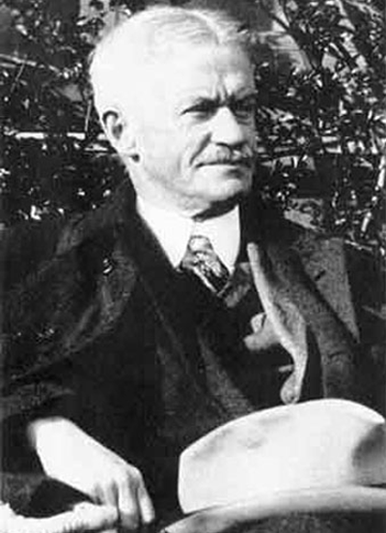 The United States are becoming an ever more foreign entity to me, and the only way that I will return to my "homeland" on a permanent basis at this point is as a concerned citizen anxious to restore the republic and defeat the establishment that has turned a nation once filled with liberty, prosperity, and hope into an empire of complacency, hypocrisy, expansion, fear, and contempt.
The United States are becoming an ever more foreign entity to me, and the only way that I will return to my "homeland" on a permanent basis at this point is as a concerned citizen anxious to restore the republic and defeat the establishment that has turned a nation once filled with liberty, prosperity, and hope into an empire of complacency, hypocrisy, expansion, fear, and contempt.
Never in my life have I devoted so much time to the history of the United States than during the past two years. And, the more I read, the more I realize how well we are duped and misled into believing that the people who serve in the US government serve in the best interests of the American public. Well, indeed, they do serve, but only a select few or merely up to the point where there is no longer anything pecuniary in it for themselves, whereupon they switch from servants of the people to servants of the state that feeds them.
The state by its very nature lives off the bounty of others -- a bounty that is collected at the point of a gun in the form of taxation and as direct and indirect theft through debt and inflation. It is a game designed by the few on behalf of the few in the name of the many. Once established it grows like a cancer and chokes the livelihoods of those on whom it depends until neither can bear the other, and it begins looking abroad for others whom it can exploit. This is, of course, the beginning of the end, and this is where we are today. We have reached the stage of empire. If only we had listened to our forefathers! If only we had heeded those among them who understood the past and could foresee the future.
I spent an interesting few days at the conference learning about the institute, getting to know the people, the history of the Austrian school in the United States, and even gaining a little insight into my own future. I was at the right place at a good time, even though my reception was a mixture of rebuke and acceptance. Still, as close as I came to achieving my goal of finding employment as an economist with a newly acquired Austrian bent or participating in someone's political campaign was a very brief interview with Ron Paul's former chief of staff, Jeff Deist, with whom I am now acquainted.
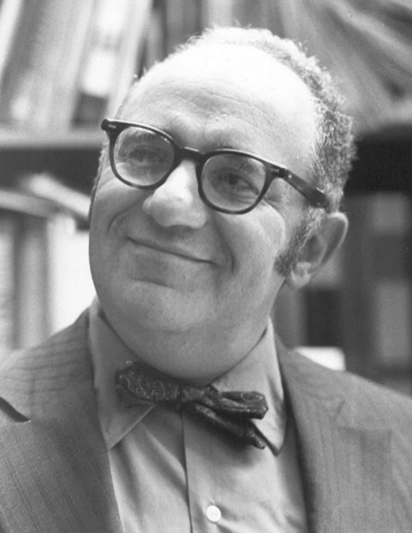 As there was nearly a week between the end of the AER Conference in Auburn, Alabama and the beginning of the TESOL conference in Portland, Oregon I had left my itinerary open. By the end of the AER Conference I had decided my next destination -- Berkeley, California. When I went to book my plane flight, however, I discovered that it was cheaper to remain two more days in Auburn, than to depart immediately for San Francisco. So, I explored a little and interacted with the local population. Although everyone asked where I was from, and I was largely treated as a foreign tourist, it was kind of fun. Since having rediscovered the "US patriot" in me, my view of the "South" had changed considerably, and my political opinions were well-received. I have become a "disaffected Northerner" so to speak, but realize that America's problems are not restricted to any particular region of the US or the world for that matter.
As there was nearly a week between the end of the AER Conference in Auburn, Alabama and the beginning of the TESOL conference in Portland, Oregon I had left my itinerary open. By the end of the AER Conference I had decided my next destination -- Berkeley, California. When I went to book my plane flight, however, I discovered that it was cheaper to remain two more days in Auburn, than to depart immediately for San Francisco. So, I explored a little and interacted with the local population. Although everyone asked where I was from, and I was largely treated as a foreign tourist, it was kind of fun. Since having rediscovered the "US patriot" in me, my view of the "South" had changed considerably, and my political opinions were well-received. I have become a "disaffected Northerner" so to speak, but realize that America's problems are not restricted to any particular region of the US or the world for that matter.
The US government has its fingers everywhere where a US citizen might find himself, as my travel experience from Jeddah to Miami clearly shows. I used to think of my passport as a kind of international driver's license across national borders. More recently I have begun to view it as a liability for search and harassment.
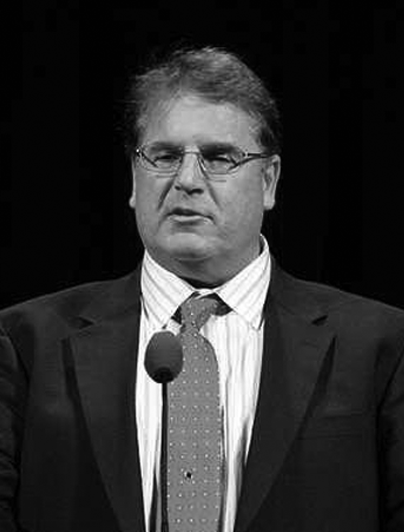 My two flights from Auburn to Phoenix and Phoenix to San Francisco resulted in two interesting, but separate conversations with two very different women seated next to me: one, was politically well informed and the other sorely in need of education. I asked questions of the first on the way to Phoenix and answered questions of the second on the way to San Francisco. As I kept listening for feedback, and nothing negative was heard, I felt energized. Midway through my flight to San Francisco my questioning interlocutor arose and did not return until we were about to land. She told me that she had been with her brother. I felt like I had met America's cognitive dissonance. Perhaps she had simply run out of questions. Maybe she just wanted to chat. Maybe she thought I was a terrorist and was waiting for me to ignite my shoe or underwear and she could cry out for help.
My two flights from Auburn to Phoenix and Phoenix to San Francisco resulted in two interesting, but separate conversations with two very different women seated next to me: one, was politically well informed and the other sorely in need of education. I asked questions of the first on the way to Phoenix and answered questions of the second on the way to San Francisco. As I kept listening for feedback, and nothing negative was heard, I felt energized. Midway through my flight to San Francisco my questioning interlocutor arose and did not return until we were about to land. She told me that she had been with her brother. I felt like I had met America's cognitive dissonance. Perhaps she had simply run out of questions. Maybe she just wanted to chat. Maybe she thought I was a terrorist and was waiting for me to ignite my shoe or underwear and she could cry out for help.
My room was waiting for me at the French Hotel where I was already a known entity from my numerous visits to the coffee shop in 2009 and my residence at the hotel while in attendance at the WEAI conference in San Francisco in 2012. I met my old acquaintance Kenneth Smythe on the afternoon of my arrival, and that evening we went for dinner at an Indian restaurant on Shattuck Avenue. On the morning of my departure I also spoke with some of the café's morning regulars over coffee. It is amazing how nothing appeared to have changed. It was an impression very different from what I had received after my first return to the United States in 2007; on that occasion I had spent nearly seventeen years overseas with only two brief visits to the US to see my mom.
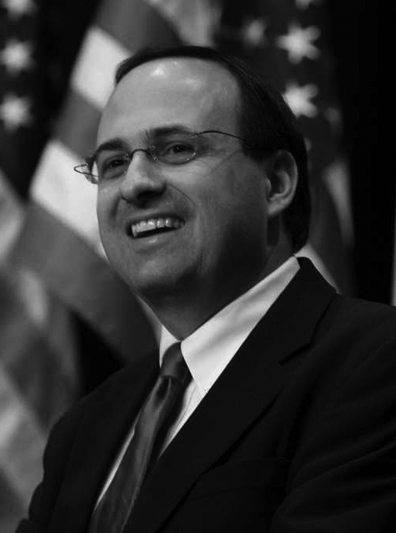 In any case I failed to achieve my most important goal in my visit to the Bay Area -- the purchase of a new Apple Computer. I simply could not withdraw enough cash from my bank account in the time that I was there, and the money left on my credit card was insufficient to cover the entire cost of purchase. I had exhausted my credit line in the payment of change-of-flight penalties! Was I to curse Osama bin Laden for having brought the world to chaos in the wake of the September 11, 2001 attack on the World Trade Center in New York, or was I to curse George W. Bush and the US financial industry for having made America and the world "a safer place to live". I cursed the latter knowing full well that Osama bin Laden likely had nothing to do with 9/11 and checked for the latest newsfeed from A&E Truth for 9/11.
In any case I failed to achieve my most important goal in my visit to the Bay Area -- the purchase of a new Apple Computer. I simply could not withdraw enough cash from my bank account in the time that I was there, and the money left on my credit card was insufficient to cover the entire cost of purchase. I had exhausted my credit line in the payment of change-of-flight penalties! Was I to curse Osama bin Laden for having brought the world to chaos in the wake of the September 11, 2001 attack on the World Trade Center in New York, or was I to curse George W. Bush and the US financial industry for having made America and the world "a safer place to live". I cursed the latter knowing full well that Osama bin Laden likely had nothing to do with 9/11 and checked for the latest newsfeed from A&E Truth for 9/11.
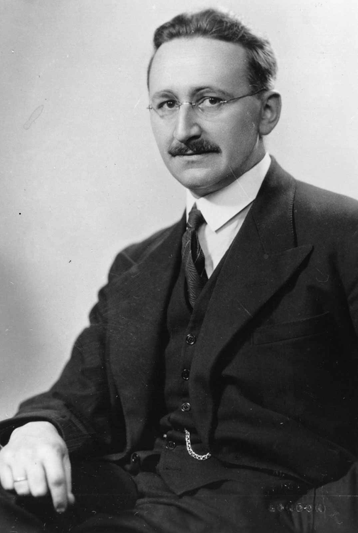 My visit to portland went well; I was able to make all of my scheduled interviews at the TESOL conference, but one. In fact, I was able to make two more than planned. None of them, however, landed me a job, and I have decided not to attend another conference in the near future. The people who do the interviewing are often not the same as those who do the hiring. Moreover, they appear not to give a very careful review of a candidate's background before inviting him to an interview. I typically face two important hiring barriers that one can readily see without terribly close scrutiny of my resumé -- my paper-age and the absence of "preferred" paper credentials. Perhaps they know more than they let on, but invite me only as insurance against younger, "better qualified" others who look good on paper, but might fail in the interview.
My visit to portland went well; I was able to make all of my scheduled interviews at the TESOL conference, but one. In fact, I was able to make two more than planned. None of them, however, landed me a job, and I have decided not to attend another conference in the near future. The people who do the interviewing are often not the same as those who do the hiring. Moreover, they appear not to give a very careful review of a candidate's background before inviting him to an interview. I typically face two important hiring barriers that one can readily see without terribly close scrutiny of my resumé -- my paper-age and the absence of "preferred" paper credentials. Perhaps they know more than they let on, but invite me only as insurance against younger, "better qualified" others who look good on paper, but might fail in the interview.
It was never my goal to become an English teacher; it just sort of happened. I am what you might call a natural. Not only am I good at it, but it takes very little effort. More importantly, it allows me to devote my time to other work that I deem more important.
Unlike so many in the English language industry who have been misled by profit-seeking publishing houses, self-interested teachers unions, publication-obsessed academicians, rent-seeking accreditation syndicates, and one-size-fits-all national government mandates, I develop innovative teaching techniques that actually serve the best interests of my students. None of this can be sufficiently expressed in a brief 20-minute interview designed to filter out statistical outliers such as myself. Indeed, I feel pressured into designing a resumé that tells people what they want to hear and behaving like a parrot of mainstream academic sophistry when actually confronted. It is a sad state of affairs, but I have somehow managed with a good deal of luck, professional dedication within my own limited sphere, excellent support from my students, and occasional assistance from understanding faculty and administrators. There are good people everywhere in the world. You just have to find them!
My big surprise was when I boarded my return flight to the East Coast and was subjected to even more harassment at the Portland International Airport. Still again, I was pulled aside.
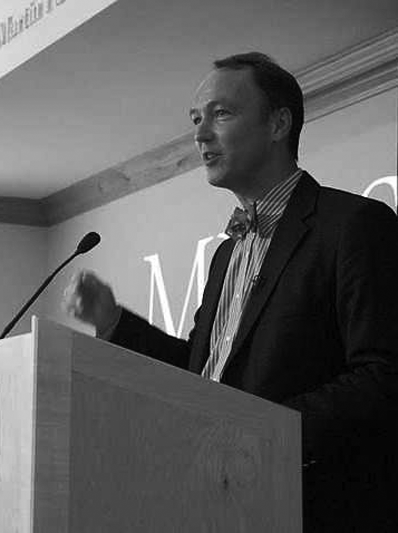 By the time I arrived in London on my return trip from Miami to Jeddah I was ready to start fighting back and simply refused to walk through Heathrow's body-scanning device. Indeed, if the anglo-saxon establishment was going to harass me, then it was clearly my turn to return in-kind. There was plenty of time for my next flight, and why waste my time and money in the luxury of an airport café when I could be exploring the administrative mechanisms of British national security? This time it was my turn to make a scene.
By the time I arrived in London on my return trip from Miami to Jeddah I was ready to start fighting back and simply refused to walk through Heathrow's body-scanning device. Indeed, if the anglo-saxon establishment was going to harass me, then it was clearly my turn to return in-kind. There was plenty of time for my next flight, and why waste my time and money in the luxury of an airport café when I could be exploring the administrative mechanisms of British national security? This time it was my turn to make a scene.
My only difficulty was when I was told to extinguish a picture that I had taken of the scanning device. I balked until I saw a little, barely visible sign in the distance that forbade picture taking, whereupon I opened my camera and extinguished the picture to an officer's delight. After a thorough pat down in a back room I was allowed to pass and not bothered for the rest of my journey back to Jeddah.
Shall I carry a toy gun on my next journey through imperial space? How about a plastic hammer and sickle with bikini briefs?
In the end my distain for travel is slowly dissipating as the global security apparatus becomes increasingly amusing. Why become angry or even sad, when you can smile inside and wait until the end of the year to laugh aloud? If everyone did as I, the entire system would break, and the establishment would have to think it through all over again. Lightning rods work well against the ever-present danger of spontaneous lightning strikes, but they also cost little to install and cause no delay of passage between rain drops. Confiscating a half-filled water bottle without asking the owner to take a sip is an example of a bureaucracy gone mad.
In Search of Employment
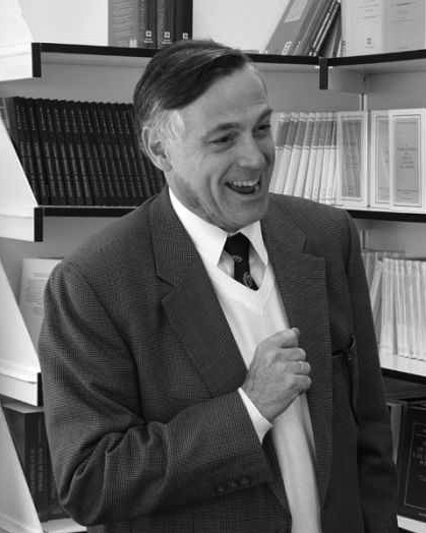 Upon my return from the US I followed up on my job interviews in Portland, but nothing came of them. So, I pursued further what few opportunities remained in Jeddah. At the College of Business and Technology, a private school nearly an hour's drive from my home on an isolated campus north of Jeddah, I was screened in an initial interview and invited back for a mock lesson with no students -- only non-Native faculty whose own understanding of the English language appeared questionable. After waiting for a week with no response I received a telephone call from my friend who had alerted me to the opening. He told me that I had been rejected for the post and asked what I had done wrong. I explained to him that nothing out of the ordinary had occurred, but that the college was clearly uninterested in what their students learned, only in the feeling of their having been instructed. Whereupon my friend explained to me what was happening to him, and I was indeed happy that I had not been hired.
Upon my return from the US I followed up on my job interviews in Portland, but nothing came of them. So, I pursued further what few opportunities remained in Jeddah. At the College of Business and Technology, a private school nearly an hour's drive from my home on an isolated campus north of Jeddah, I was screened in an initial interview and invited back for a mock lesson with no students -- only non-Native faculty whose own understanding of the English language appeared questionable. After waiting for a week with no response I received a telephone call from my friend who had alerted me to the opening. He told me that I had been rejected for the post and asked what I had done wrong. I explained to him that nothing out of the ordinary had occurred, but that the college was clearly uninterested in what their students learned, only in the feeling of their having been instructed. Whereupon my friend explained to me what was happening to him, and I was indeed happy that I had not been hired.
Then, came my series of interviews at Effat University, a private, all women's school located not very far from the gym where I worked out. After a brief ten-minute chat with the director of international affairs, and several subsequent visits with the concierge, I was finally able to obtain an interview with the director of personnel and my potential future boss, the head of the communications department. Although I was never introduced to my potential future colleagues as promised, the interview went really well, and I was invited back for another interview with my potential future boss and the university's provost. This interview also went well, and I thought surely that I had found my next job. I was very excited, told my friends at King Abdulaziz University of my good fortune, and waited for a contract offer. After nearly two weeks of silence I contacted the director of personnel and was told that they had chosen someone else. Disappointed by the decision, I contacted my potential future boss, and she explained to me that the university had found a woman of equal worth, and that I would surely find another post in Jeddah. Alas, my first real chance to get to know the other half of Saudi society had vanished as quickly as it had come, and the reason given was that the other half preferred the other half.
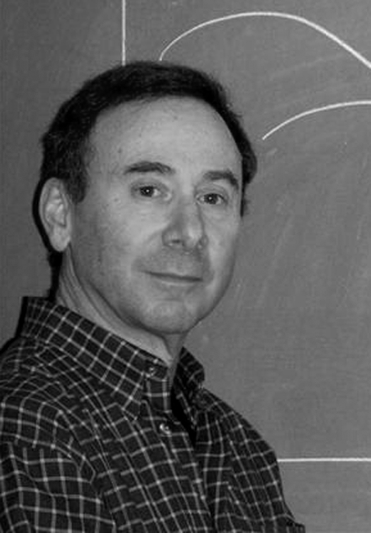 Then, there was the Prince Sultan College of Tourism that was recommended to me by the barista at Starbuck's where I went to avoid the smoke of other cafés. He was a student there, and I was told that he would like to have me as his English teacher. I had been driven from my own residence by earth-movers on the neighboring lot and had taken refuge in the coffee shop for much of the day. By this time I had been compelled to surrender my university office to another faculty member.
Then, there was the Prince Sultan College of Tourism that was recommended to me by the barista at Starbuck's where I went to avoid the smoke of other cafés. He was a student there, and I was told that he would like to have me as his English teacher. I had been driven from my own residence by earth-movers on the neighboring lot and had taken refuge in the coffee shop for much of the day. By this time I had been compelled to surrender my university office to another faculty member.
So, I visited the college, found the office of the person in charge of recruitment, and left a hard copy of my resumé. A week later I returned for an opportunity to meet with the recruitment officer and was told that he would call. After waiting a week, I went back to his office, but he was not there. I asked his office-mates to inform him of my visit and tell him that I was still interested. I waited longer and went back still again only to be told that there was no opening and that he would call me as soon as a post became vacant. I never heard from him again.
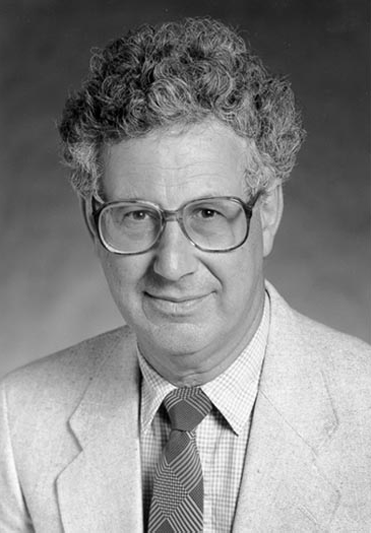 My first journey across a desert was in the summer of 2012 when I pitched a tent in Desert Valley, Nevada and sat naked in the dark atop a barren hill near a desolate campground in which I was the only camper. I spent much of the night gazing at the stars and waiting for the sun to rise. I simply could not sleep under the suffocating heat. My second journey across a desert was on my way to Riyadh and back. It was in fulfillment of an employment contract that was never realized.
My first journey across a desert was in the summer of 2012 when I pitched a tent in Desert Valley, Nevada and sat naked in the dark atop a barren hill near a desolate campground in which I was the only camper. I spent much of the night gazing at the stars and waiting for the sun to rise. I simply could not sleep under the suffocating heat. My second journey across a desert was on my way to Riyadh and back. It was in fulfillment of an employment contract that was never realized.
In early summer I received a job offer from a private company to which I had not applied. The company seemed to be as desperate in their search for a new hire, as I had become in finding new employment in Saudi Arabia. Who could know? Maybe it would work out? I had no other job offer in sight and no desire to finish off the year, as I am finishing it off anyway -- unemployed. Besides, there was a ninety-day probation period during which either side could quit the contract with no advanced notice, and my apartment was paid off until February 2015. My back was covered. In addition, Riyadh is a very big city and wealthier than Jeddah, and it likely offered many more job opportunities that I could explore while in my new post. My heart was set on finding work at a private university, anyway. Just imagine the faces of a committee in charge of selecting papers for presentation at a conference on economic research, were its members to see that I was working as an English language instructor for the Infinity Air Academy? In any case, I am a good teacher, know my language well, and was in need of employment.
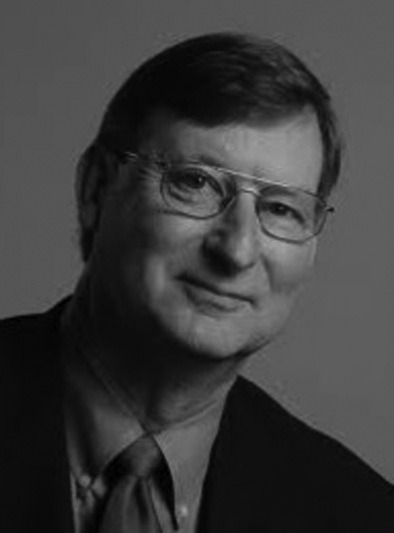 I suppose the stage was set when Alpha Star, the travel agent that appeared to be in charge of recruitment, visa procurement, and even housing for the academy, demanded that I surrender simultaneously both my passport and Saudi residence permit in a FEDEX to Riyadh, and further insisted that this was normal business procedure for their company. I wisely refused, and we agreed that I would travel to Riyadh at my own expense and that I would pay for the two or three days overnight stay while I waited for them to process my new permit (iqama). So, I packed my belongings and filled my rented car to the brim with things that I did not want to have to purchase anew upon my arrival in Riyadh.
I suppose the stage was set when Alpha Star, the travel agent that appeared to be in charge of recruitment, visa procurement, and even housing for the academy, demanded that I surrender simultaneously both my passport and Saudi residence permit in a FEDEX to Riyadh, and further insisted that this was normal business procedure for their company. I wisely refused, and we agreed that I would travel to Riyadh at my own expense and that I would pay for the two or three days overnight stay while I waited for them to process my new permit (iqama). So, I packed my belongings and filled my rented car to the brim with things that I did not want to have to purchase anew upon my arrival in Riyadh.
After three days had past, Alpha Star informed me that they were still unable to process my new residence permit, but that they would pay for my further lodging at a different hotel. As I was already settled at the IBIS, I asked them, if there were some reason that I could not remain where I was. They agreed. Several more days past and the 10-day haj vacation was rapidly approaching. So, I called to ask for a written confirmation of our new agreement. While waiting for their reply I learned that my future fellow colleagues were moving into their new lodgings. So, I called again and suggested that there would be no need for a written confirmation, if they would simply allow me to move in with my colleagues. After waiting for a good hour for their decision, I was provided with a telephone number and told to call my new boss. It was the first time that I had spoken with him on the phone, and he was full of questions. After dutifully answering all of his inquiries I received a call from Alpha Star, was given a name of the person in charge of my new permanent residence, and directions to the facility.
Everything appeared to be running smoothly, until I arrived at my new residence; there was not even a bed. This was not my primary concern, however. What mattered was my future living situation in general. I had been promised a studio apartment with a full kitchen, and what I saw was a two-burner stove with no oven. The further absence of a dishwasher was a disappointment, but did not become an issue until I saw the furnishings of the residence of my colleague with whom I would be sharing the same duplex. He had everything that I had been promised plus much more! As my side of the duplex was still under renovation, I called Alpha Star and asked, if some adjustment could not be made, whereupon I was told that no adjustment would be necessary. Everything would be shared! Oh, really?
This was, indeed, a very mixed blessing, and to my chagrin I informed my new duplex-mate of the startling new arrangement. Obviously, he was just as surprised as I. Obviously, Alpha Star and Infinity Air Academy had a communication problem, and a number of things still needed to be sorted out.
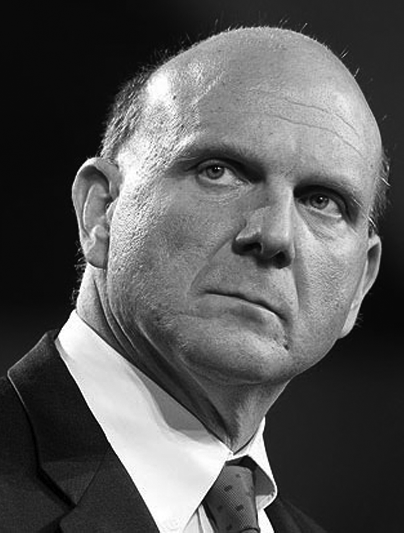 My future duplex-mate and I parted company, and I went to the community center where I expected that I would be spending a lot of time. As it was my first time to see the facilities of a foreign residents compound, I had a good look around, met the manager in charge of residential affairs along the way, and was invited into her office. While she was processing my new membership I received a telephone call from my future boss and listened for several minutes as I was blamed for the confusion between Alpha Star and Infinity Air Academy! When it appeared that my "new boss" had vented his anger, I asked him, if I could not explain, and was told that he did not care whether I spoke or returned to Jeddah. Whereupon, I told him that I would call him back and hung up. As soon as I recovered from his tirade of wrath, I called my friends at Alpha Star, and told them what had happened, whereupon it was eventually agreed that I would meet with my "new boss" and Alpha Star on the following morning in a spirit of real dialogue.
My future duplex-mate and I parted company, and I went to the community center where I expected that I would be spending a lot of time. As it was my first time to see the facilities of a foreign residents compound, I had a good look around, met the manager in charge of residential affairs along the way, and was invited into her office. While she was processing my new membership I received a telephone call from my future boss and listened for several minutes as I was blamed for the confusion between Alpha Star and Infinity Air Academy! When it appeared that my "new boss" had vented his anger, I asked him, if I could not explain, and was told that he did not care whether I spoke or returned to Jeddah. Whereupon, I told him that I would call him back and hung up. As soon as I recovered from his tirade of wrath, I called my friends at Alpha Star, and told them what had happened, whereupon it was eventually agreed that I would meet with my "new boss" and Alpha Star on the following morning in a spirit of real dialogue.
As I had already abandoned my lodging at the IBIS, Alpha Star offered to put me up at "their" hotel. There was no reason to object, as all of my things were packed and in my car, and I was in a state of transition anyway. When I arrived at Alpha Star on the following morning, I was presented with my passport and former residence permit and told that Infinity Air Academy was no longer interested. I reminded Alpha Star that there was a 90-day probationary period and that I had come along way just to be scolded on the telephone for something for which I was not responsible. When it was clear that the decision had been made, I told Alpha Star that, if they kept their agreement and paid for the additional days of my stay at the IBIS, I would quit the scene in peace. They paid.
I returned to the IBIS and tried to make good on the two days remaining before the start of the haj vacation. I called my former boss at King Abdulaziz University and asked him, if he could not recommend a list of private universities in Riyadh. Not one of the five personnel offices that I called answered their phone or returned my calls. Apparently everyone had already left for vacation. I returned to Jeddah empty-handed.
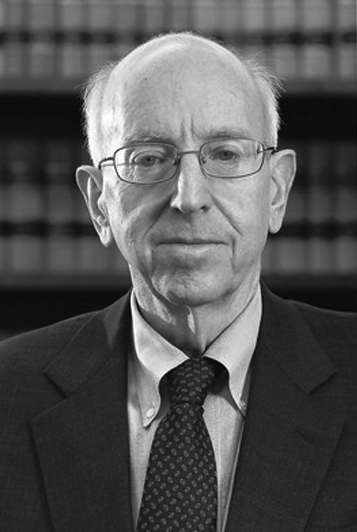 Just before my departure I noticed that my BOSE headphones were missing, and when I called the hotel arranged for me by Alpha Star to see, if they had not been turned in as lost-and-found, they claimed to have no record. It was salt in the wound. After the excellent treatment that I had received at the IBIS, I was not about to accuse their staff of theft. There was only one other place where I might have left them, and that was in the compound at my new residence. My former, but brief duplex-mate claimed no knowledge of them.
Just before my departure I noticed that my BOSE headphones were missing, and when I called the hotel arranged for me by Alpha Star to see, if they had not been turned in as lost-and-found, they claimed to have no record. It was salt in the wound. After the excellent treatment that I had received at the IBIS, I was not about to accuse their staff of theft. There was only one other place where I might have left them, and that was in the compound at my new residence. My former, but brief duplex-mate claimed no knowledge of them.
On the happy side, I got to see and experience a part of Saudi Arabia that I had not experienced before, and visited with my good friend Bernard Yourrel in Buraidah on my way to Riyadh. I cannot recommend the return, overland trip from Riyadh to Jeddah, however. For, if you are not Muslim, when you reach Mecca you are rerouted with the truckers, and a 30-minute stretch of road quickly becomes a two-hour test of endurance. Whereafter there are nearly zero road markers telling you the way back to Jeddah. Even if you are Muslim, there are numerous checkpoints on the way from Riyadh to Mecca that force you to decelerate every 40-60 kilometers after first taking your picture and ticketing you for speeding without your knowledge. The amount paid in traffic violations for my trip to Riyadh and back is unspeakable, and all I was doing is what is perfectly natural when crossing a desert terrain -- moving as quickly and safely as possible to my next destination. I used to like driving in Saudi Arabia.
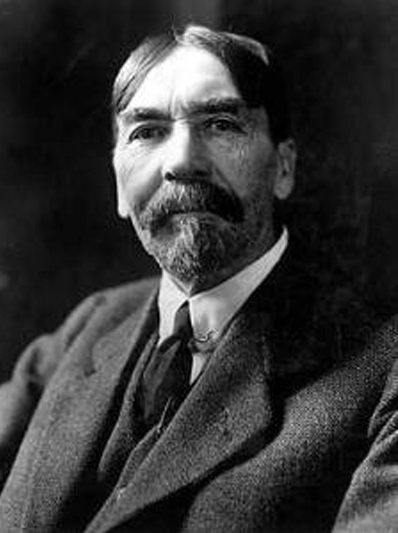 It was not long after my return from Riyadh that I received a telephone call from an employment agent with whom I had left my resumé on the internet. The job was in Jazan, the capital city of a tiny Saudi province with the same name, located in the southwest corner of the kingdom along the Yemeni border. The agent told me that he had something better, and I listened. He wanted me to become the private tutor of a university president in Abha, a larger city located to the north of Jazan and surrounded by mountains on all sides. Hesitant, but knowing well that my age excluded me from further employment at most Saudi universities, I agreed to pursue the position and convinced the agent that the president and I should meet before we enter into agreement. He thought my suggestion wise, and an appointment was arranged for me to meet with the university's vice president. It seemed a little odd that I was to meet the vice president before meeting the president, but maybe the latter was a busy man and had a very close relationship to the former. Or, maybe the agent, I, or both of us, had not been given the whole story!
It was not long after my return from Riyadh that I received a telephone call from an employment agent with whom I had left my resumé on the internet. The job was in Jazan, the capital city of a tiny Saudi province with the same name, located in the southwest corner of the kingdom along the Yemeni border. The agent told me that he had something better, and I listened. He wanted me to become the private tutor of a university president in Abha, a larger city located to the north of Jazan and surrounded by mountains on all sides. Hesitant, but knowing well that my age excluded me from further employment at most Saudi universities, I agreed to pursue the position and convinced the agent that the president and I should meet before we enter into agreement. He thought my suggestion wise, and an appointment was arranged for me to meet with the university's vice president. It seemed a little odd that I was to meet the vice president before meeting the president, but maybe the latter was a busy man and had a very close relationship to the former. Or, maybe the agent, I, or both of us, had not been given the whole story!
A one-way ticket was quickly booked and several days later I found myself on a plane to Abha. From the air Abha appeared a little greener than Jeddah, but not as green as Taif. When I disembarked I was impressed by the coolness of the early morning air that sent ripples through my skin. It was a great welcome. As my interview was in the afternoon, I rented a car so as not to waste my visit to a place that I had never been. My GPS in my iPhone took me directly to the university where I sought out the person responsible for setting up my interview with the vice president. To my surprise and delight I was granted an interview on the spot. After chatting briefly about my accent and the vice president's studies in the US in areas of the country that I had only visited or with which I was completely unfamiliar, he asked to see my resumé. I could only wonder what had happened to the electronic copy that I was told had been sent to him by the agent. In any case I informed the gentleman that I had a copy with me, but that it was in my car. He then asked me about my current status with King Abdulaziz University, told me that he could fix things, and would contact me later that afternoon about my meeting with the president. In return I told him that I did not smoke and asked him where I could best pass my time while waiting for his call. He suggested the Abha Palace Hotel. We parted ways, and I provided his secretary with a soft copy and enough hard copies of my resumé for both the vice president and the president. The hotel was on the opposite side of the city.
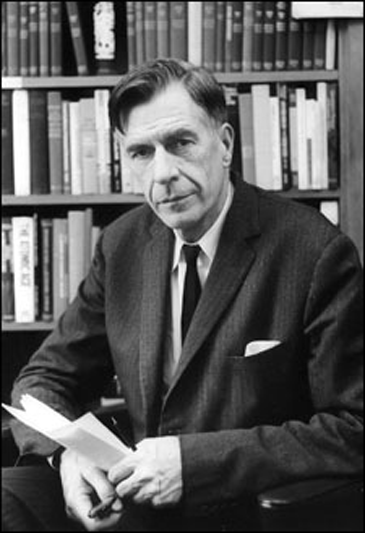 As my meeting with the vice president appeared successful, I abandoned my plans to travel around until after my not yet scheduled meeting with the president. Although the hotel was a very nice place to spend the rest of the morning, by 2:00 PM I had still not heard from the vice president. Now, I had never been to King Khalid University before, but if it were anything like King Abdulaziz University, it starts becoming difficult to find staff after 2:30 PM. So, I sent an SMS, along with a photograph of me waiting at the hotel, to the vice president and mentioned the beauty of my surroundings. He did not respond. By 2:30 PM I called the employment agent who had arranged my trip to Abha and asked him about the intended purpose of my travel.
As my meeting with the vice president appeared successful, I abandoned my plans to travel around until after my not yet scheduled meeting with the president. Although the hotel was a very nice place to spend the rest of the morning, by 2:00 PM I had still not heard from the vice president. Now, I had never been to King Khalid University before, but if it were anything like King Abdulaziz University, it starts becoming difficult to find staff after 2:30 PM. So, I sent an SMS, along with a photograph of me waiting at the hotel, to the vice president and mentioned the beauty of my surroundings. He did not respond. By 2:30 PM I called the employment agent who had arranged my trip to Abha and asked him about the intended purpose of my travel.
I spent that evening in the Salam Palace Hotel, as the Abha Palace Hotel was undergoing renovation on two of its floors and was booked full. When it was time for dinner I ascended to the top of the hotel, signed in, and proceeded to gather my food. Having filled my plate I looked for an empty table near the window and sat down. Something was not right, but no one appeared disturbed. So, I did what I always do when I sense motion that I do not understand. I fixed my eyes on a close and distant point, and discovered that indeed we were all moving. I was seated in a revolving restaurant.
I called the waiter and asked how long it took for a complete revolution and decided to make my meal last as long. While eating I would pause, take a photograph, and then return to my meal. After completing one revolution I got up for dessert, and discovered someone seated at my table on my return. I pretended that I had not been eating there and asked, if I might join him. Like me at first, he did not know that he was seated in a revolving restaurant, and I waited for him to discover it. It was kind of fun. More interesting, however, was the copy of Catcher in the Rye that he had laid in from of his place setting. I had never seen a book so worn and disheveled and did not dare question its condition for fear of breaking the spell that it cast on the table. At one point in our discussion he paused before it, and it seemed like minutes before his speech returned. Whereupon he told me that he had an appointment with someone else in "a minute and a half", and he excused himself. How could he know the time? He had not looked at his watch since I had seated myself, and my smartphone lay in darkness on the table. I never heard from, or saw him again. The employment tips that he gave me about Oman never bore fruit, and the business card that I gave him was apparently for nought.
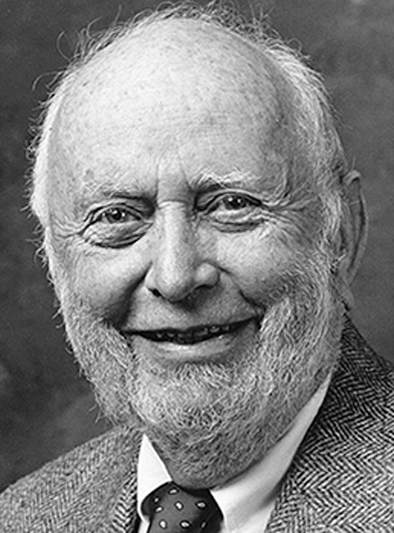 That morning when I went to take a shower, there was no hot water. So, I shaved and showered with cold and wondered why the hotel had been recommended to me as first best after the Abha Palace Hotel. I did manage to get a very good night's rest, as the bed was far superior to the one that I had occupied in Riyadh after my failed boss's telephone tirade. I missed my flight that morning. As I had no baggage to claim and security had not asked to see a boarding pass, I did not have one when I arrived at the boarding gate. I was told that I good not board without one and that the machine to issue one at the gate was out-of-order. My telephone confirmation was worthless at that point, and I was told to go to the ticket counter and book a new flight. Five hours later I was thankful to be on my way back to Jeddah with or without a "presidential" interview. The warm blanket of air that greeted me in Jeddah as I got off the plane felt good. Maybe the president is a smoker.
That morning when I went to take a shower, there was no hot water. So, I shaved and showered with cold and wondered why the hotel had been recommended to me as first best after the Abha Palace Hotel. I did manage to get a very good night's rest, as the bed was far superior to the one that I had occupied in Riyadh after my failed boss's telephone tirade. I missed my flight that morning. As I had no baggage to claim and security had not asked to see a boarding pass, I did not have one when I arrived at the boarding gate. I was told that I good not board without one and that the machine to issue one at the gate was out-of-order. My telephone confirmation was worthless at that point, and I was told to go to the ticket counter and book a new flight. Five hours later I was thankful to be on my way back to Jeddah with or without a "presidential" interview. The warm blanket of air that greeted me in Jeddah as I got off the plane felt good. Maybe the president is a smoker.
As best I can tell, the city of Uozu is a modest fishing port surrounded by a fertile agrarian landscape. It also appears to host a newly created, direct, high-speed rail connection with Tōkyō. I have also learned that it hosts a small international population and a city center that has been losing business to suburban shopping centers. Like most of Japan its senior population is growing, and there are ever fewer young people to sustain them. The local merchants are concerned about about the ever higher cost of living brought about by the higher cost of foreign imports and pending increases in the national consumption tax. The community wants to grow, but it is strapped for cash, and the future is uncertain.
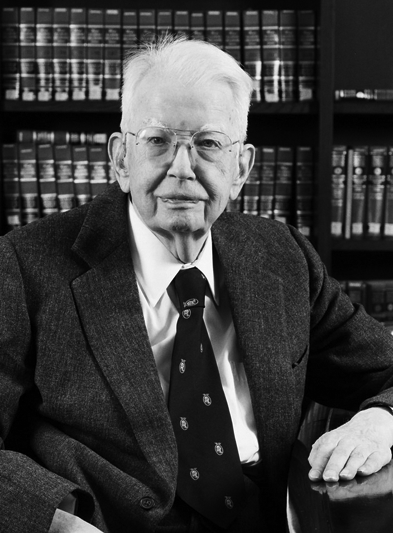 The Japanese electorate has just given a vote of confidence to the same political party that has allowed the national economy to stagnate for the past two decades -- this, despite the ever-growing number of political parties that have arisen in opposition. Unfortunately, none of them appears to have captured the imagination of the majority of the Japanese people. Indeed, the Japanese government, like the governments of most of the Western world, has buried itself and its people in a mountain of debt, and the party in power is using every manner of chicanery to trick its people into believing that it can continue to steer the same misguided course without serious sacrifice on the part of its citizenry. Unfortunately, these latter are in for a sad awakening, as the world's financial system is corrupt, and few of us will be able to escape the economic disaster that lies ahead. Simply, the parochial island mentality of the Japanese people shields them well from much of the external political chaos and serves as a diversion for what lies ahead at home. Indeed, this shield will not protect them from the internal political chaos that will surely result when the global economy collapses under the weight of public debt.
The Japanese electorate has just given a vote of confidence to the same political party that has allowed the national economy to stagnate for the past two decades -- this, despite the ever-growing number of political parties that have arisen in opposition. Unfortunately, none of them appears to have captured the imagination of the majority of the Japanese people. Indeed, the Japanese government, like the governments of most of the Western world, has buried itself and its people in a mountain of debt, and the party in power is using every manner of chicanery to trick its people into believing that it can continue to steer the same misguided course without serious sacrifice on the part of its citizenry. Unfortunately, these latter are in for a sad awakening, as the world's financial system is corrupt, and few of us will be able to escape the economic disaster that lies ahead. Simply, the parochial island mentality of the Japanese people shields them well from much of the external political chaos and serves as a diversion for what lies ahead at home. Indeed, this shield will not protect them from the internal political chaos that will surely result when the global economy collapses under the weight of public debt.
So, you might be wondering by now what any of this has to do with my employment search. In midsummer, I quit Facebook, turned to Twitter, and rediscovered my old friend Koshikawa Takafumi. I recalled that he was active in local politics and fell upon the idea that he could help me find employment in Japan. He agreed. He had several ideas that were really never very clear to me, but I left the door open, and soon I was tweeting with what seemed like the entire Uozu city council and the rest of Japan. I would not recommend what I did as a way to find employment, but it did become a great means for me to rediscover my friend, refresh my Japanese language skills, and familiarize myself with contemporary Japanese society. It was a rolly coaster ride filled with images and fraught with laughter, tears, and anger, as I relived much of what I had experienced during the nine years that I had spent in Japan, as well as my 2012 Liberty Trek across the continental US. It also inspired me to explore other avenues of reentry. With a little help from my good friend Bernard Yourrel I even managed to find one -- a private company that supplies the Japanese school system with native English language teachers on three-month renewable contracts. Indeed, it has become the only star on my otherwise heavily clouded job horizon, and for the moment it is tiny, if not teeny, but very bright. It may just provide me with the door that I need to return to Japan.
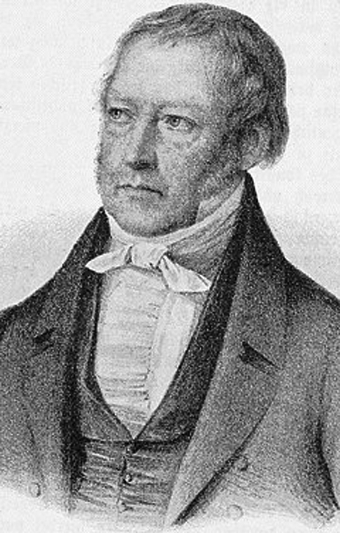 One might ask, why I want to return to Japan, and it is a question for which I do not have a very clear answer. It might be that it is the one place where I had once stored the greatest hope in my tumultuous professional career. Also, unlke many other places in the world I know the language and culture well; this is a great asset in one's everyday goings-on. Besides, this time I would not return with the illusions of my past. What is more, I am on a very different path than I was on when I first stepped foot on Japanese soil in 1991. Certainly I have little to lose, as my only real alternative is to return to the United States or disappear into oblivion. Short of entering into politics, however, I have little idea what I could accomplish in the US. With no political experience other than that of an informal social, economic, and political observer and online commentator, the chances of my success are probably not good. At this point, however, no open door can be ignored.
One might ask, why I want to return to Japan, and it is a question for which I do not have a very clear answer. It might be that it is the one place where I had once stored the greatest hope in my tumultuous professional career. Also, unlke many other places in the world I know the language and culture well; this is a great asset in one's everyday goings-on. Besides, this time I would not return with the illusions of my past. What is more, I am on a very different path than I was on when I first stepped foot on Japanese soil in 1991. Certainly I have little to lose, as my only real alternative is to return to the United States or disappear into oblivion. Short of entering into politics, however, I have little idea what I could accomplish in the US. With no political experience other than that of an informal social, economic, and political observer and online commentator, the chances of my success are probably not good. At this point, however, no open door can be ignored.
Well, there is a lot more that I could tell about my search for new employment, but I will not pursue it further here, as it is a task that generally provides me with far more disappointment than it does joy. My goal is not to drive myself into a state of depression at the year's end.
Bureaucratic Struggle
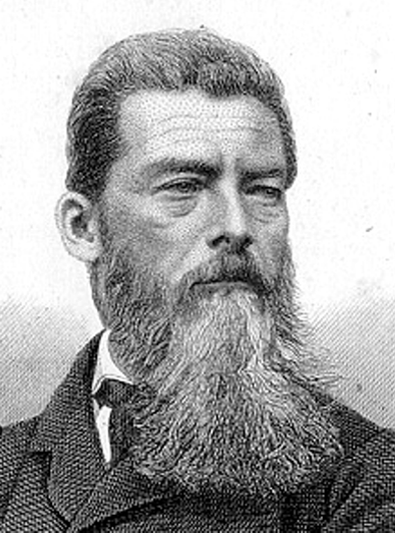 In early summer, shortly after I learned that Effat University had found a woman instructor in my stead, I heard the sound of heavy machinery outside my homeoffice window, and realized that my residence was under siege. The empty lot that had been used as a parking lot by local residents for the more than two years that I had occupied my apartment had suddenly become a construction site. I was driven from my office into my dining room to escape the noise, but could not escape the sounds of heavy machinery outside my bedroom window in the wee hours of the morning. It was living the horror of construction and renovation to which I had been made subject in Hong Kong all over again, and a host of bad memories were reawakened. I was not about to go down without a fight, already had some idea about what needed to be done, and quickly assessed the nature of my enemy.
In early summer, shortly after I learned that Effat University had found a woman instructor in my stead, I heard the sound of heavy machinery outside my homeoffice window, and realized that my residence was under siege. The empty lot that had been used as a parking lot by local residents for the more than two years that I had occupied my apartment had suddenly become a construction site. I was driven from my office into my dining room to escape the noise, but could not escape the sounds of heavy machinery outside my bedroom window in the wee hours of the morning. It was living the horror of construction and renovation to which I had been made subject in Hong Kong all over again, and a host of bad memories were reawakened. I was not about to go down without a fight, already had some idea about what needed to be done, and quickly assessed the nature of my enemy.
It was somewhat after 11:00 PM that I heard the sound of passing heavy equipment come to a halt in front of my building. I descended immediately and asked that no further action be taken. I explained that, yes, this is a construction site, but, no, it is not an industrial zone, and that people do need to sleep at night. The driver appeared to understand and said that he would speak with the manager. I returned to my residence. Things were quiet for about a half-an-hour. As soon as the first cement truck arrived, I descended again, and spoke with the individual overseeing the work. I explained my position again, and offered that he pay for my lodging in a hotel room for the night, if he were to insist with his current plans of pouring cement during my bedtime. He refused and then claimed that he would only pour for two hours and be gone. As the equipment was already in place, there was little I could do, but plan my next step. I waited for the two hours to pass, and some forty minutes or so later met a patrol car with two policemen at a prearranged location. I escorted them to my residence. As we arrived, the final piece of equipment was just departing from the site. I drove my car in front of its path, and forced it to a halt, whereupon the police interrogated the driver and obtained the names and contact information of the people in charge. I was then told by the police to file a formal report at the local police station. So I, and another witness to the incident went to the station. I retuned home well after 3:30 AM and went to bed.
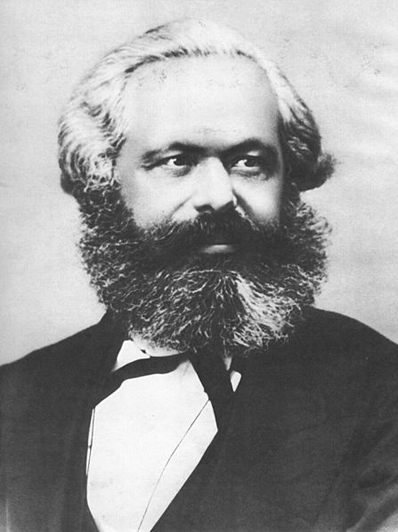 While at the station I was given the choice of suing the company for damages or simply demanding that it stop construction in the wee hours of the morning. I chose the latter as an expression of good faith toward my community and with the hope that the police would take action. Several nights later a similar set of events repeated themselves. Obviously my police report had fallen on deaf ears. So, I took photographs of the equipment, the location, and my iPhone desktop to record the time and date and proceeded to the same station where I had filed my report. I was told to return on the following day and speak with the captain. I obtained a coffee on my way home and spent the next several hours attending to other matters while accompanied by the sound and vibration of "heavy metal" next door. On the following day I returned to the police station, as I had been instructed, only to learn that the police would not take action. I was told that the company in charge of the construction had a license to work at night. I asked the captain to obtain for me a copy of the license and the location of the office that had issued it, and he said that he would call me back.
While at the station I was given the choice of suing the company for damages or simply demanding that it stop construction in the wee hours of the morning. I chose the latter as an expression of good faith toward my community and with the hope that the police would take action. Several nights later a similar set of events repeated themselves. Obviously my police report had fallen on deaf ears. So, I took photographs of the equipment, the location, and my iPhone desktop to record the time and date and proceeded to the same station where I had filed my report. I was told to return on the following day and speak with the captain. I obtained a coffee on my way home and spent the next several hours attending to other matters while accompanied by the sound and vibration of "heavy metal" next door. On the following day I returned to the police station, as I had been instructed, only to learn that the police would not take action. I was told that the company in charge of the construction had a license to work at night. I asked the captain to obtain for me a copy of the license and the location of the office that had issued it, and he said that he would call me back.
I never received his call, but did not really care. I had done my part and was now in Riyadh expecting to begin my new employment in a matter of days.
Thankful that I had not relinquished my Jeddah residence until my job was secure in Riyadh, I had a place to return. Unfortunately, I returned to more of the same and was so depressed that I unpacked only a portion of my belongings. I did not relinquish the fight, however, and took it upon myself to seek out the same captain who told me that he would call me back. When I arrived he was seated at his desk and surrounded by his comrades. In his right hand he held a coffee, and in his left a telephone receiver. He did not look up when I entered, and did not look up the entire time that he was on the phone. He actually fielded a second call on his mobile seemingly oblivious to my presence. While I was standing in front of his desk several of his comrades departed. When he finally looked up, I informed him that I had no evidence of his having called, whereupon he told me that he was a busy man. I explained to him that I was a disturbed citizen and asked him what action he had taken in my regard. He told me that he had sent my case to the municipal office in charge of construction. I was then instructed to go downstairs with one of his officers who gave me a case and telephone number -- no name, not even a position title.
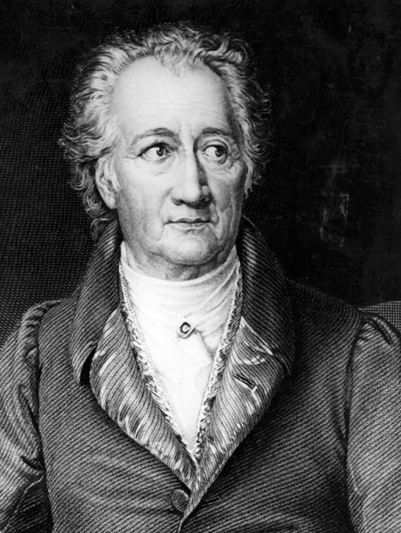 I took the number to my good friend, Samer, at the university's legal department and asked that he call the number and discover what action had been taken on the part of the office. He called and explained that the construction manager had been called in and told to cease work after 6:00 PM. He also explained that the license was issued under a general directive from a prince who wanted to facilitate construction in the kingdom. I returned home thinking that I had finally secured my peace. Two days later the heavy equipment arrived again in the wee hours of the morning, and on the following day I went to visit for a second time with Samer. I explained to him that my decision not to take legal action had changed, that I had spoken with other residents of my apartment, as well as the building manager, and that everyone had agreed to sign a petition demanding compensation. My friend replied that his office was overloaded and was not up for the task. When I asked that he accompany me to the office he agreed, but that he would be unavailable for the rest of the week. During the following week I was besieged still again, and further communication with my friend hinted that no further assistance would be forthcoming. So, I asked him to discover the location of the office for me, and that I would go alone. When still no action was taken, and I learned that he was ill and making frequent visits to the hospital, I sent him a night photo taken from my bedroom window of a cement truck and told him that I would soon join him in the hospital. He responded with the location. On the following day I went to the office and sat in traffic for two hours on my return. It was a time for revery.
I took the number to my good friend, Samer, at the university's legal department and asked that he call the number and discover what action had been taken on the part of the office. He called and explained that the construction manager had been called in and told to cease work after 6:00 PM. He also explained that the license was issued under a general directive from a prince who wanted to facilitate construction in the kingdom. I returned home thinking that I had finally secured my peace. Two days later the heavy equipment arrived again in the wee hours of the morning, and on the following day I went to visit for a second time with Samer. I explained to him that my decision not to take legal action had changed, that I had spoken with other residents of my apartment, as well as the building manager, and that everyone had agreed to sign a petition demanding compensation. My friend replied that his office was overloaded and was not up for the task. When I asked that he accompany me to the office he agreed, but that he would be unavailable for the rest of the week. During the following week I was besieged still again, and further communication with my friend hinted that no further assistance would be forthcoming. So, I asked him to discover the location of the office for me, and that I would go alone. When still no action was taken, and I learned that he was ill and making frequent visits to the hospital, I sent him a night photo taken from my bedroom window of a cement truck and told him that I would soon join him in the hospital. He responded with the location. On the following day I went to the office and sat in traffic for two hours on my return. It was a time for revery.
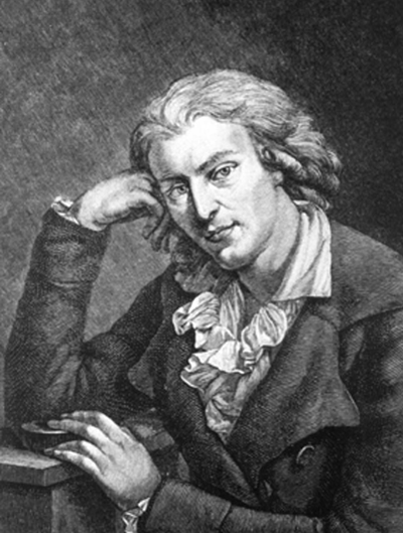 While in the office I met the fellow who had called the construction manager in for a conference two weeks prior. He immediately argued in favor of the construction manager, and I understood the source of the problem. I asked to speak with his boss. After standing in the hall way for many minutes with several others, I was invited into the section manager's office and asked to take a seat. Many more minutes past, as I waited for the manager to attend to other business. When he finally turned to my case, it became clear that his English was not as good, as I had hoped. Although it was better than my Arabic, it was clear that we needed bilingual support. Fortunately, Samer was in, and I passed my phone to the manager. When my phone was handed back, Samer told me to show him the photo of the cement truck taken from my window and the time and date that it was taken. I showed the photo, time, and date, asked to see my file, found the initial police report, and showed this to the section manager along with a series of dates during which the construction company was clearly in breach of his office's directive, as well. He actually counted them. Immediately, I knew I was in good hands and reseated myself, as the manager examined my file in greater detail. After several more minutes had past, he made a call, and the staff member in charge of my case soon appeared. He confirmed the date of his directive. The section manager asked that I show my photo to the man. I was only too willing. More discussion followed, and soon I observed as the manager wrote a note on a tiny piece of paper. When he put his pen down, he told me that my file would be sent back to the police station for further action. I thanked him and asked, if I could be given a copy of the pertinent documents. He declined.
While in the office I met the fellow who had called the construction manager in for a conference two weeks prior. He immediately argued in favor of the construction manager, and I understood the source of the problem. I asked to speak with his boss. After standing in the hall way for many minutes with several others, I was invited into the section manager's office and asked to take a seat. Many more minutes past, as I waited for the manager to attend to other business. When he finally turned to my case, it became clear that his English was not as good, as I had hoped. Although it was better than my Arabic, it was clear that we needed bilingual support. Fortunately, Samer was in, and I passed my phone to the manager. When my phone was handed back, Samer told me to show him the photo of the cement truck taken from my window and the time and date that it was taken. I showed the photo, time, and date, asked to see my file, found the initial police report, and showed this to the section manager along with a series of dates during which the construction company was clearly in breach of his office's directive, as well. He actually counted them. Immediately, I knew I was in good hands and reseated myself, as the manager examined my file in greater detail. After several more minutes had past, he made a call, and the staff member in charge of my case soon appeared. He confirmed the date of his directive. The section manager asked that I show my photo to the man. I was only too willing. More discussion followed, and soon I observed as the manager wrote a note on a tiny piece of paper. When he put his pen down, he told me that my file would be sent back to the police station for further action. I thanked him and asked, if I could be given a copy of the pertinent documents. He declined.
When I returned home I wrote the following SMS to Samer: "Now what? I asked for a copy of the letter in which the construction manager agreed to stop work after 6:00 PM. I was declined and told that a copy of the infraction would be sent to the police. Now, if I go to the police at 3:00 AM in the morning, the officer on duty will not have access to my file, and I will be told to return during "normal" working hours. What have I gained?"
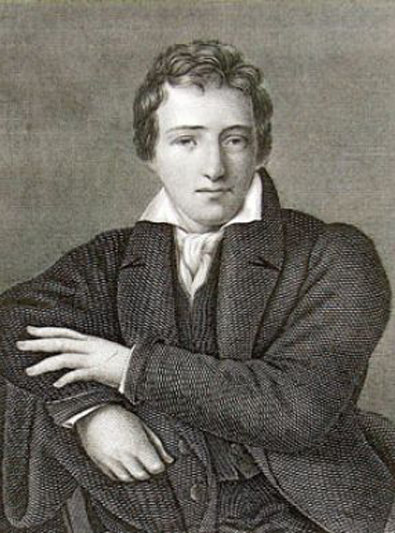 Fortunately, no further major annoyance has been observed, but late night material deliveries were recorded on two occasions. Did I win? Have I won? My initial report was submitted before September 26th, and my trip to the municipal office was made on December 7th. The heavy construction is nearly complete, and I have lost no fewer than 17 recorded night's sleep. Several days ago, I noticed cement trucks gathering in midday, climbed into my car, and went to my favorite coffee shop. It was open, and I felt a sense of impoverished victory.
Fortunately, no further major annoyance has been observed, but late night material deliveries were recorded on two occasions. Did I win? Have I won? My initial report was submitted before September 26th, and my trip to the municipal office was made on December 7th. The heavy construction is nearly complete, and I have lost no fewer than 17 recorded night's sleep. Several days ago, I noticed cement trucks gathering in midday, climbed into my car, and went to my favorite coffee shop. It was open, and I felt a sense of impoverished victory.
That no one ever claim that I seek to take the law into my own hands. I could have parked my car in front of the site every night and risked vandalism. The bureaucracy in Hong Kong was no better -- slow to react and only very effective because of persistence on the part of its citizens -- namely, me. A similar problem in Japan, but not as severe, also revealed bureaucratic lethargy. I gave up on the US bureaucracy long ago. No, government is not the answer. It is simply a place where solutions are delayed.
The approximate cost of overnight accommodations at a fine Saudi hotel is SAR 600. The recorded number of incidents of abuse of license is 17. And, the estimated number of disturbed households is 40. Multiplying these numbers together yields the tidy sum of SAR 408,000 (USD 108,681). Based upon the above calculation the amount of compensation due a single household is SAR 10,200 (USD 2,717). Do you think the threat of the larger sum would be enough for me to secure the smaller as compensation for my community effort?
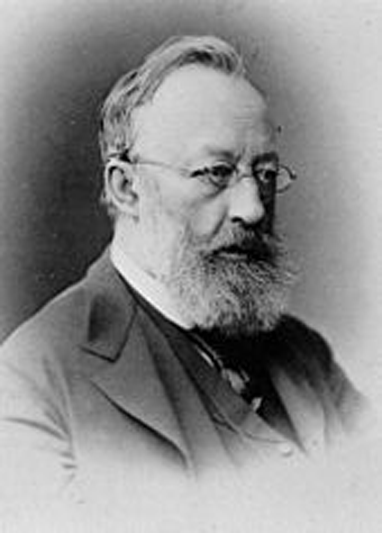 It is difficult to understand why my own faculty made it so difficult for me to recover the money that was owed me for my extended contract, but as a result of my effort to obtain what should have been mine all along I gained the respect of many people, both in my faculty and the university's personnel department. Maybe they just needed to get to know me better, and the way to go about it was to deprive me of what was mine and see how I would react.
It is difficult to understand why my own faculty made it so difficult for me to recover the money that was owed me for my extended contract, but as a result of my effort to obtain what should have been mine all along I gained the respect of many people, both in my faculty and the university's personnel department. Maybe they just needed to get to know me better, and the way to go about it was to deprive me of what was mine and see how I would react.
What I thought would have been a very simple matter -- a simple oral extension of the written contract that had ended the year before -- turned out to be something akin to a very tedious tooth extraction under sedation. At first, I was denied the entirety of my foreign residence premium. This is the amount paid by the Saudi government to attract foreign nationals into the kingdom. It is an amount in addition to the salary that would otherwise be received by a Saudi national and is based on one's nation of origin. Well, this is my interpretation based upon what I have understood in conversation with various university personnel.
After this "clerical error" was discovered and fixed, it was a matter of recovering my housing and travel allowances including the cost of my return to place of origin. In addition, there were missing two-months vacation pay for a full academic year's of work. These, too, were finally obtained, but not all at once, and each required numerous letters and trips to various offices on both my part and the part of several others in my own faculty and that of the university at large. To this day, I do not understand why everyone was made to go through all of the additional work. Yes, it is true that vice presidential approval was required and that payment would come on a quarterly, instead of a monthly basis, through a different office. But really, all one had to do was look at the previous contract, divide by four, and issue a check at the end of each quarter. If one wanted to itemize according to the nature of the payment, one could have even designed a schedule by which only certain items would be paid each quarter.
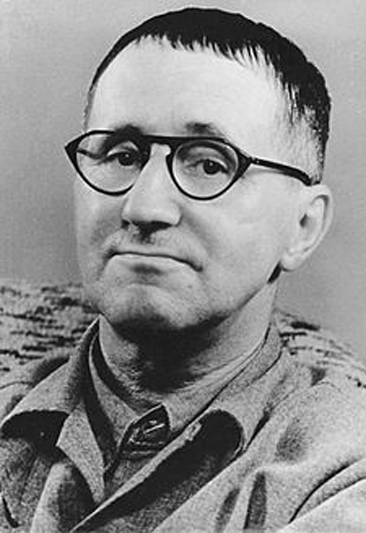 On the one hand, I felt that the university was trying to cut me short; and on the other hand, I felt like it was doing everything in its power to help me recover what was reasonably mine. There is still one matter left outstanding, but it is not related to my previous faculty. Indeed, it is small matter compared to the others, but has been more difficult to recover. I will continue in my effort, but not with the urgency that I pursued the other matters.
On the one hand, I felt that the university was trying to cut me short; and on the other hand, I felt like it was doing everything in its power to help me recover what was reasonably mine. There is still one matter left outstanding, but it is not related to my previous faculty. Indeed, it is small matter compared to the others, but has been more difficult to recover. I will continue in my effort, but not with the urgency that I pursued the other matters.
In the end, I am very grateful to the university for allowing me to remain in the kingdom until my Saudi resident permit expires next year. They are facilitating well my transition to my next employment, and we will surely part ways in friendship. It is up to me to find my own employment, and it appears fairly certain that the university is not responsible for my inability to remain. Simply I miss my students and the security of a steady income and am finding it very difficult to find similar employment elsewhere.
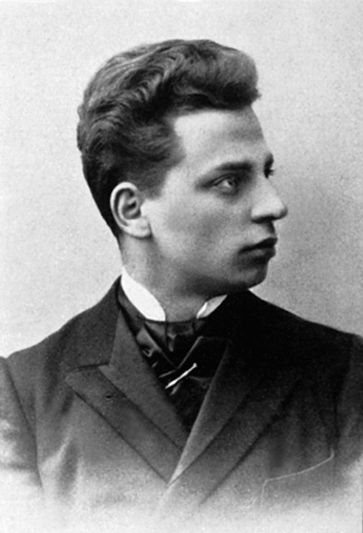 During the summer I even provided free Japanese lessons three times a week to help overcome the sense of loss. Since my return from Jeddah working out at the gym six times a week has largely filled the gap. At the gym nearly everyone is in his 20s or 30s, and I feel pretty much at home in such a social environment. Even I have met King Abdulaziz University staff and students there -- this, despite its being somewhat distant from the university.
During the summer I even provided free Japanese lessons three times a week to help overcome the sense of loss. Since my return from Jeddah working out at the gym six times a week has largely filled the gap. At the gym nearly everyone is in his 20s or 30s, and I feel pretty much at home in such a social environment. Even I have met King Abdulaziz University staff and students there -- this, despite its being somewhat distant from the university.
An Ancient Greek Lifestyle in the Heart of Islam
Just as many Christians do not appreciate the torch of knowledge that was carried by the Islamic community after the fall of Rome and past back to Western europe via the Iberian peninsula before the rise of the Spanish empire, many Muslims do not appreciate the torch of knowledge received from the remnants of the Byzantine empire on the opposite end of the Mediterranean Sea. An enormous amount of translation from Greek into Arabic was undertaken in the early days of Arab conquests. These studies were largely carried out in the cities of Basra and Baghdad (present-day Iraq) and would eventually be transformed into a flourishing culture in its own right -- a culture that would, in time, extend from the Western Mediterranean to the Pacific Ocean.
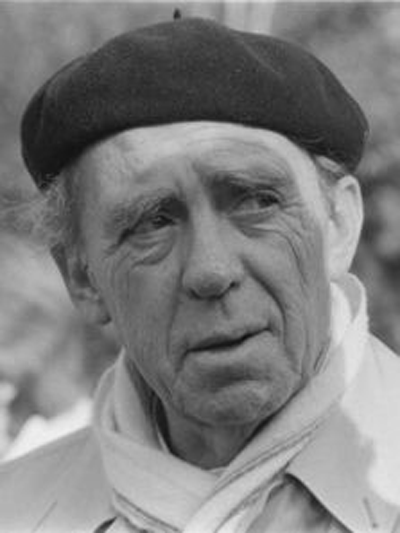 Without becoming overly romantic I have taken up the Greek tradition of erudition through sound mind and body and have made it the mainstay of my well-being in Saudi culture until I can find new employment. Every afternoon just after the dhuhr call to prayer I head for the gym where I perform an intensive work-out in the company of primarily Saudi youth. By the time I arrive most of my gym-mates have finished their prayer and are ready to train. I finish up somewhat before the maghreb call to prayer and arrive home with my town-lights on just in time to watch the sunset. During these approximately two hours much of Saudi society is asleep, so the gym is generally not crowded, and my highway passage to and from the gym is rather smooth.
Without becoming overly romantic I have taken up the Greek tradition of erudition through sound mind and body and have made it the mainstay of my well-being in Saudi culture until I can find new employment. Every afternoon just after the dhuhr call to prayer I head for the gym where I perform an intensive work-out in the company of primarily Saudi youth. By the time I arrive most of my gym-mates have finished their prayer and are ready to train. I finish up somewhat before the maghreb call to prayer and arrive home with my town-lights on just in time to watch the sunset. During these approximately two hours much of Saudi society is asleep, so the gym is generally not crowded, and my highway passage to and from the gym is rather smooth.
Before I left for Riyadh, I said good-bye to everyone at my previous gym. I had no intention of returning. When I was in Riyadh I sought out the FitnessTime gym closest to my hotel and discovered an entirely different group of people, atmosphere, and facilities. When I returned to Jeddah I explored other FitnessTime gyms, as my membership was good everywhere FitnessTime was to be found. As I was now unemployed, I had free time that I did not have before and knew from past experience how important the gym would become. No one pays you to go to a gym, but going helps you to maintain the discipline required to succeed in the workplace when you finally return. It was hardly the first time that I had found myself out on the street without a source of income. So, I knew what I needed to do.
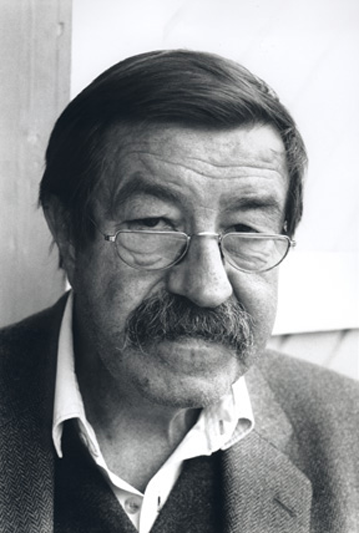 Daily ritual with an occasional change-up is key to sound mind and body. Indeed, I discovered the only FitnessTime gym in Jeddah with an outdoor basketball court that was reasonably close to my residence. So, three days of the six that I go, I am able to nourish my body with the healthy rays of late afternoon sunshine.
Daily ritual with an occasional change-up is key to sound mind and body. Indeed, I discovered the only FitnessTime gym in Jeddah with an outdoor basketball court that was reasonably close to my residence. So, three days of the six that I go, I am able to nourish my body with the healthy rays of late afternoon sunshine.
Within days of my first having took off my shirt the administration objected. Apparently, someone had complained. Fortunately, it was a relatively easy task to convince the people in charge that the nearby residents who could see my half-naked body, could also see the more exposed bodies of other gym members swimming in the outdoor pool next to the court. The gym's management relinquished to reason, and the only challenges that I have experienced since are from an occasional facility user. What is more, I actually have something to show that I can be proud of!
Recently, I have begun pressing 173 kg (380 lbs); this is more than twice my own weight. My abs are now showing with good distinction, and, although I can still afford to lose more fat, I look the best I have ever been. To the extent that these looks convert into feeling depends on the day, but my age on paper and my age in body and spirit simply do not match the more depressing social expectations. Although this creates a problem when I look for work, it is anything, but a problem in Saudi society at large. I am in constant receipt of compliments about my fitness and vitality, and people appear attracted to me in ways that they have never appeared before. I feel it most when I am around children, for they are growing at a phenomenal rate and are physically smaller relative to everyone else, but themselves.
My day of rest is the Muslim holy day of al juma'ah.
I have maintained my low-grain, low-sugar diet that I embarked upon last year and am assiduous to the point of starvation within my 10-hour a day fasting period. It really does help me to control my weight. What is more, my body appears to have adapted to my new physique, as my desire to eat large quantities of anything has largely disappeared. My birthday cake made with butter-cream frosting that I consumed in less than three days was a rare exception, as well as the two pies that I baked -- a pumpkin pie for Thanksgiving and a cherry one for Christmas. My body has still not recovered, but the change in weight has been minor. I enjoyed all of it knowing that I would have to wait until next year to do the same horrible thing again.
Sugar can be very addicting, and I am glad that I have a kitchen in which I can control my consumption of it. It simply is not good for us in large quantities. The grain that we eat today has also been shown to create inflammation that effects our joints and arteries. I largely avoid bread, cake, pastry, and pasta of any kind.
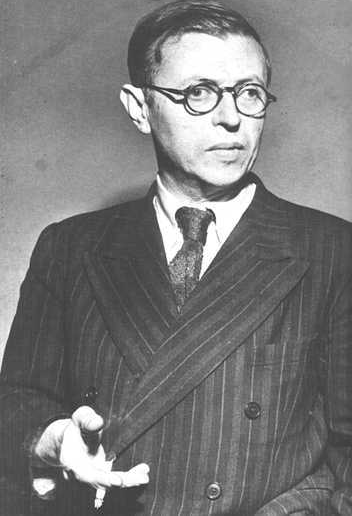 There is no doubt that my trip to the Von Mises Institute in the spring inspired me to do more, but the more was hardly in the direction that I expected when I left the institute. Indeed, my determination to make good on my paper that was rejected by the conference's hosts caused me to rewrite it several times over. It was far more than a simple revision; one paper became two, and what was originally variation on someone else's theme, became very original in its own right. My problem is that I do not know where to send it for review and publication. Although it was inspired by the Austrian school, it is not really Austrian in nature. At its foundation are the mathematical modelling techniques that I acquired as a graduate student at the University of Washington and to which main stream economists are not only accustomed, but which they commonly demand for publication. This said, it is written in the Austrian spirit and strikes at the heart of main stream macroeconomic assumptions. What is worse, I am separated from by graduate notes and am somewhat hindered thereby in developing the model further. Still, it is of very good quality both in the written word and the model's technical aspects -- so good, in fact, that I learned from it as I sought to apply it. Needless to say, I am very pleased with my effort.
There is no doubt that my trip to the Von Mises Institute in the spring inspired me to do more, but the more was hardly in the direction that I expected when I left the institute. Indeed, my determination to make good on my paper that was rejected by the conference's hosts caused me to rewrite it several times over. It was far more than a simple revision; one paper became two, and what was originally variation on someone else's theme, became very original in its own right. My problem is that I do not know where to send it for review and publication. Although it was inspired by the Austrian school, it is not really Austrian in nature. At its foundation are the mathematical modelling techniques that I acquired as a graduate student at the University of Washington and to which main stream economists are not only accustomed, but which they commonly demand for publication. This said, it is written in the Austrian spirit and strikes at the heart of main stream macroeconomic assumptions. What is worse, I am separated from by graduate notes and am somewhat hindered thereby in developing the model further. Still, it is of very good quality both in the written word and the model's technical aspects -- so good, in fact, that I learned from it as I sought to apply it. Needless to say, I am very pleased with my effort.
Then, too, there is the qualitifications barrier that stands between me and mainstream academia. I do not hold a Ph.D. and am therefore automatically treated as a junior researcher or an eccentric quack. Some of the comments that I have received from publication review boards in the past have been nothing less than ludicrous. The professional arrogance that some of these people exude is simply amazing.
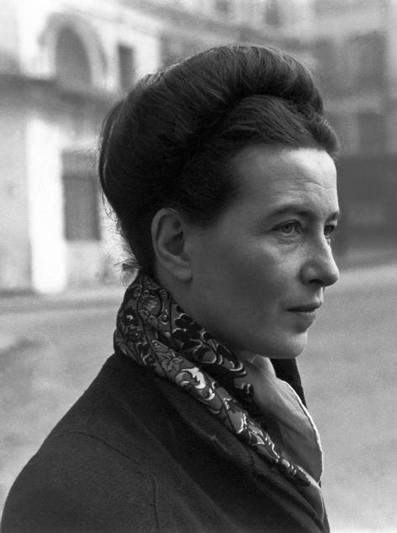 As my original paper was rejected by both AERC and WEAI, I was very careful when I submitted my revision to the WEAI. Only the first paper of the revision that had become two papers and a second paper totally unrelated to either of the other were submitted. The first paper was immediately rejected, and the second paper was accepted. I had thus determined that it was the topic to which they were objecting -- namely, my rejection of popular Keynesian assumptions. So, I allowed the rejection to go through without objection and waited to see how my second paper would be handled. It was assigned to a group of researchers with whom my only common interest was economics and the geographical location that inspired the paper. As the paper had little to do with the geographical region per se, it was clear that I was being used simply to fill up space and embellish the number of conference participants.
As my original paper was rejected by both AERC and WEAI, I was very careful when I submitted my revision to the WEAI. Only the first paper of the revision that had become two papers and a second paper totally unrelated to either of the other were submitted. The first paper was immediately rejected, and the second paper was accepted. I had thus determined that it was the topic to which they were objecting -- namely, my rejection of popular Keynesian assumptions. So, I allowed the rejection to go through without objection and waited to see how my second paper would be handled. It was assigned to a group of researchers with whom my only common interest was economics and the geographical location that inspired the paper. As the paper had little to do with the geographical region per se, it was clear that I was being used simply to fill up space and embellish the number of conference participants.
I cancelled my participation to the upcoming conference and asked that my membership be withdrawn from the organization. Apparently, they did not take my indignation seriously, as I have been invited to attend their next conference. There is very little chance that I will attend, though. Yes, I could probably get my first paper approved my simply changing the title and rewriting the abstract so as to appease their fallacious sensibilities, but surely there are other economic forums that are more respectful of their membership and their members' professional contribution.
Indeed, I refuse to be belittled by those who would base their assumptions about market forces on a corrupt economic and financial system. Certainly, it is not bad science to make the assumptions necessary to model the reality that it is designed to describe. The moral injustice and social misconduct occurs when the assumptions are taught without criticism of the criminal establishment that they essentially legitimize. This is the paramount virtue of the Austrian school.
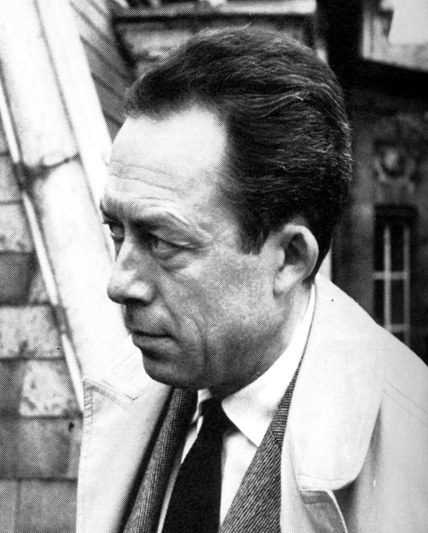 There is a general disdain among the mainstream economics community for the Austrian school. Although the motivation for this rejection is clear, it is ill-conceived and a detriment to the economics profession. The Austrians are little better in this regard, mind you, for despirte their well-founded criticism of mainstream economic assumptions, they fail to appreciate the often systemic nature of human social organization. In the Austrian mind there exists only the individual decision maker and collective behavior is largely ignored, as a result. Although morally speaking it is the correct approach to human behavior, human beings are not entirely moral in nature. They are social animals that depend on the thought and behavior of others with whom they share their time and space. More importantly, this dependence is often irrational from the individual point of view, but totally understandable from the point of view of the collective. In effect, it is systemic.
There is a general disdain among the mainstream economics community for the Austrian school. Although the motivation for this rejection is clear, it is ill-conceived and a detriment to the economics profession. The Austrians are little better in this regard, mind you, for despirte their well-founded criticism of mainstream economic assumptions, they fail to appreciate the often systemic nature of human social organization. In the Austrian mind there exists only the individual decision maker and collective behavior is largely ignored, as a result. Although morally speaking it is the correct approach to human behavior, human beings are not entirely moral in nature. They are social animals that depend on the thought and behavior of others with whom they share their time and space. More importantly, this dependence is often irrational from the individual point of view, but totally understandable from the point of view of the collective. In effect, it is systemic.
In the end, I simultaneously appreciate and reject both schools of economic thought, but am decidedly pro-Austrian, for the simple reason that Austrians challenge the corrupt nature of the state at its core and offer insight into a proper course of future action that the more systemic approach of mainstream economics actively -- sometimes consciously, often unconsciously -- conceals.
The world is clearly set on a bad course, but the course is not new and will surely repeat itself, if we do not correct it. This course is not inevitable, as we can prevent the recycling of human history, if only we would spend more time in its consideration -- not as professional historians, but as students of history in a more general sense. We need to teach ourselves to better appreciate where we have been so that we can better plan just where it is that we are going. After which, we must keep our eye on the ball -- all of us!
The interpretation of history has been handed over to the state who demands loyalty to itself with little else in mind but its own propagation and survival. Unfortunately for the rest of us, its interpretation of history is self-serving, and humankind suffers in the long-run because of it. As a species we are sorely in need of a longer term perspective that cuts across generations and national borders. Simply riding the tide of human folly is both stupid and dangerous. As we have the power to mold our own future, we are negligent, if we do not take it.
A Man, Two Boys, Another Man,
Several Rocks, a Stick, and a Crowbar
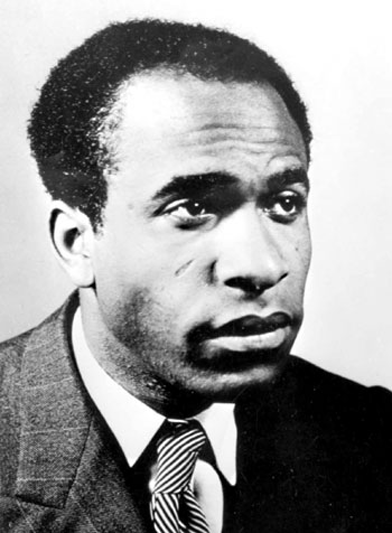 First the man and one of the rocks. An exit from an underground parking lot at a shopping center that I frequent opens onto a highway split into four parts by three dividers. There is the main six-lane road in the middle and one three-lane road on either side of the main road. In order to move in the opposite direction from the parking lot exit, one must cross the side road moving in the direction of the exit, enter into the side of the main road moving in the same direction, find one's way into the far left lane, and proceed to an intersection with a light. There, turning is fairly easy provided everyone obeys the light.
First the man and one of the rocks. An exit from an underground parking lot at a shopping center that I frequent opens onto a highway split into four parts by three dividers. There is the main six-lane road in the middle and one three-lane road on either side of the main road. In order to move in the opposite direction from the parking lot exit, one must cross the side road moving in the direction of the exit, enter into the side of the main road moving in the same direction, find one's way into the far left lane, and proceed to an intersection with a light. There, turning is fairly easy provided everyone obeys the light.
While crossing the side road I misjudged the speed of an oncoming car and caused him to blow his horn. With an empty lane in front and behind me and no other cars in sight, there was little chance of an accident. All I remember is the driver's rapid approach, a blaring horn, and my having entered into the main road safely. Somewhat after making my turn a car pulled close to my side and I saw the driver waving at me with a scolding finger. At first I did not relate it to the awkward road crossing already long before, as one has to deal with such awkward moments on a fairly regular basis. There is only one absolute rule of the road in Saudi Arabia. Be first! All of the other rules typically followed in other countries in which I have driven are only followed when convenient, if they are even understood or known.
After the man saw that I found his waving finger of little interest, he pulled in front of me and slammed on his breaks nearly causing an accident. I had two choices: confront him with his own malcontent, or proceed around him. As this was not the first time that I had been confronted with such a driver, I simply proceeded around him. Discussing past events with such people is really a waste of time, because they believe that only they are in the right, and that everyone else is wrong. They are simply looking for someone to blame for their own seemingly uncontrollable discomfort.
When he followed close to my tail, I sped up, but he would not relent. Eventually I made a turn that left him in on the other side of the divider and moving in a direction that was at right angles to mine. Because I wanted to go in the same direction that he was now going, but had no desire to engage him again, I back-tracked, returned to the original light with the intention of starting over. I thought that I was rid of him.
While waiting at the light, he suddenly appeared standing at my window in a tirade of blame. Apparently, he had stopped his car, boarded a taxi, and followed me to the light. It is the only way that I could explain the physical possibility of his sudden appearance. He knew a little English and was accusing me of having caused trouble for his daughter. Unfortunately, he did not know enough English for me to feel very comfortable in getting to the root of the problem, and when the light turned green I proceeded without him. As I was turning back, he picked up a rock and through it at my car. I ducked just in case it would reach the window. The rock barely reached the panel below the door behind me, and left an appreciable, but not very visible ding. I never saw the man again. I do not know that he truly has a daughter.
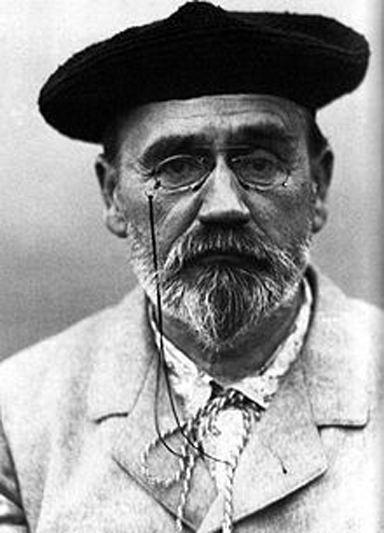 I was sitting in my office when I heard a thud. And, then another. Whereupon I stood up, went to the window, and saw two boys -- one of them was holding a rock in his hand. Why were they throwing rocks against my building? I descended to the street and followed them to a nearby playground at some distance from my building. As I followed, I was visited by thoughts of the just described man and his rock.
I was sitting in my office when I heard a thud. And, then another. Whereupon I stood up, went to the window, and saw two boys -- one of them was holding a rock in his hand. Why were they throwing rocks against my building? I descended to the street and followed them to a nearby playground at some distance from my building. As I followed, I was visited by thoughts of the just described man and his rock.
When I arrived at the playground the boys had already climbed onto a large toy built for climbing. I observed for a moment and then approached the boy who I had seen holding the rock. He did not know who I was, and when I asked to see his father, he looked at me, as if he had not understood. So, I repeated in Arabic, "Father. Where is your father? I want to see your father." This time he appeared to understand. He spoke with the other boy and waived his hand, as if I should follow.
As we walked, our pace quickened. We left the playground, passed a large neighborhood mosque, and moved on to a vacant lot. By that time several other boys had joined the parade, likely curious to see what was going on. At the head of our entourage, some distance from the rest of us, were the two boys. They were talking, but one could not hear what was being said. Suddenly, they broke into a run, and I gave chase. Within moments one of the boys had lost one of his sandals, and I stopped to pick it up. The two kept running, and I with sandal in hand returned to the mosque. The other boys followed. By this time there were the equivalent of two soccer teams of various ages and sizes gathered around me wanting to know what the two boys had done. I told them only that I wanted to see the father of the boy whose sandal I now held in my hand.
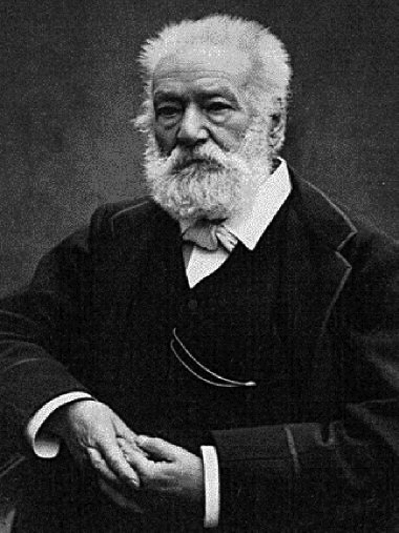 The door of the mosque opened to a very large carpeted room. It was my first time in a mosque, and my hope was to find a resident imam -- a silly notion, but something that I would only discover much later. Instead, I was greeted by a boy wielding a stick and waiving it high in the air, as if he would strike. Apparently he had entered the mosque just after me, for there was no one else inside. There was a brief stand-off as the boy repeatedly yelled at me to leave. Another boy seeing the danger of a fight entered between me and the boy with the stick and pointed to my feet. Whereupon I looked to the ground and saw that I was the only one with covered feet. I understood. Whereupon I left the mosque and was acosted by another boy who spoke a little English and began blaming me for entering "God's house" with my "shoes" on.
The door of the mosque opened to a very large carpeted room. It was my first time in a mosque, and my hope was to find a resident imam -- a silly notion, but something that I would only discover much later. Instead, I was greeted by a boy wielding a stick and waiving it high in the air, as if he would strike. Apparently he had entered the mosque just after me, for there was no one else inside. There was a brief stand-off as the boy repeatedly yelled at me to leave. Another boy seeing the danger of a fight entered between me and the boy with the stick and pointed to my feet. Whereupon I looked to the ground and saw that I was the only one with covered feet. I understood. Whereupon I left the mosque and was acosted by another boy who spoke a little English and began blaming me for entering "God's house" with my "shoes" on.
I quickly realized that my role as the possible victim of a rock-throwing incident had suddenly changed to the role of a heretical intruder. So, I took aim and refocused everyone's attention on the boy with the stick still standing in the mosque and asked, if it were OK to wield sticks in "God's house". How many boys understood the discussion is hard to say, but those who did also understood that I was not the only one to blame.
There appeared a man whom some of the boys apparently knew, and after brief conversation I understood that he was indeed a neighbor. He appeared to be offering help. When I told him that I wanted to speak with the father of the boy who had fled, still another boy approached claiming to be the brother of the rock-thrower, and that his father was in Egypt. His manner was unkind, and I could not trust his words as a result. I scanned the faces of the boys who had gathered, and neither of the two boys who had fled was among them. It was clear that my quest was over.
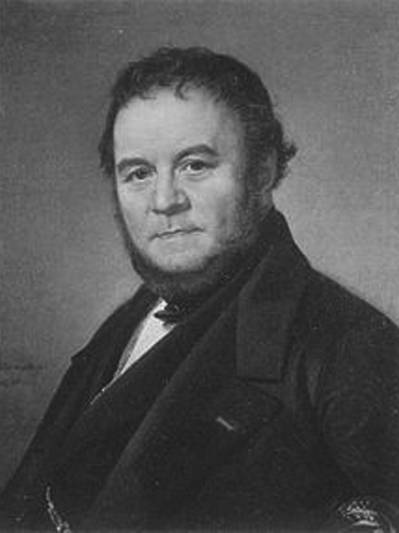 When the man asked me why I wanted to see the boy's father, I thanked him for his help, and told him that it was between me, the boy, and his father, and parted ways. From my back there was a sudden rush, and the boy who claimed to be the younger boy's brother sought to wrench his brother's sandal from my hand. He failed and backed off, as soon as I turned to identify the aggressor. I returned home with the sandal -- a souvenir of the event and a tribute that could be paid, were the boy's father and I ever to meet. It did not happen.
When the man asked me why I wanted to see the boy's father, I thanked him for his help, and told him that it was between me, the boy, and his father, and parted ways. From my back there was a sudden rush, and the boy who claimed to be the younger boy's brother sought to wrench his brother's sandal from my hand. He failed and backed off, as soon as I turned to identify the aggressor. I returned home with the sandal -- a souvenir of the event and a tribute that could be paid, were the boy's father and I ever to meet. It did not happen.
Several weeks past, and the earth movers began their excavation beside my building. Perhaps the rock-throwers were the harbingers of the several months of agony that would follow. (See Bureaucratic Struggle above.) I was happy to leave for Riyadh, and when I left, I discarded the sandal.
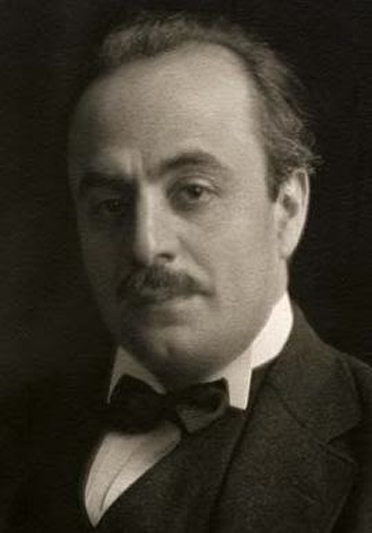 On another stretch of road very close to my residence construction was underway. The road was six lanes with a divider, studded trees, and three lanes on each side. In the direction of my residence the effective number of lanes varied from one to three, as in places cars were parked on either side of one side of the divide. As a result, and for a very long time, the other side of the divider had become two-way traffic with two to three effective lanes depending on the number of people parked to one side. After the construction was over many of us continued in the driving pattern adopted during the construction. Simply, we knew that there would nearly always be two lanes that were open, and that our passage would be relatively unencumbered. At one point along the stretch five of the six lanes were nearly always open. Although I had never witnessed one occur, the accidents along this stretch were numerous and interesting. On one occasion I watched as two wreckers were needed to clear the road, and on still another I saw a tall truck filled with 5-gallon water bottles turned over on its side. Most of the other accidents were minor, but too frequent for such an open space.
On another stretch of road very close to my residence construction was underway. The road was six lanes with a divider, studded trees, and three lanes on each side. In the direction of my residence the effective number of lanes varied from one to three, as in places cars were parked on either side of one side of the divide. As a result, and for a very long time, the other side of the divider had become two-way traffic with two to three effective lanes depending on the number of people parked to one side. After the construction was over many of us continued in the driving pattern adopted during the construction. Simply, we knew that there would nearly always be two lanes that were open, and that our passage would be relatively unencumbered. At one point along the stretch five of the six lanes were nearly always open. Although I had never witnessed one occur, the accidents along this stretch were numerous and interesting. On one occasion I watched as two wreckers were needed to clear the road, and on still another I saw a tall truck filled with 5-gallon water bottles turned over on its side. Most of the other accidents were minor, but too frequent for such an open space.
The problem lay in a crossing between the two sides of the divided road and the apparent need for some drivers to take up two lanes to make their turn. Another cause for stress was the new routing pattern that resulted from the construction. One day while availing myself to the aforementioned two-way pattern, I was nearly hit by a car.
I was on the two-lane side moving with passage in both directions wanting to cross-over into the three-lane side where all traffic was moving in the same direction. My right-blinker was on, and I needed to get into the right lane on the other side of the divide. In effect, it was a lane change that necessitated my use of the cross-over. The other driver was merrily speeding down the middle lane on the side of the divide into which I was entering. He could have slowed or passed me on my left. He chose to speed up and pass me on the right in the lane that I was trying to enter. When he suddenly appeared in my right-rear window I swerved back into the middle lane in which I was still present, thus avoiding an accident. Whereupon he continued ahead of me forcing me to slow and eventually stop.
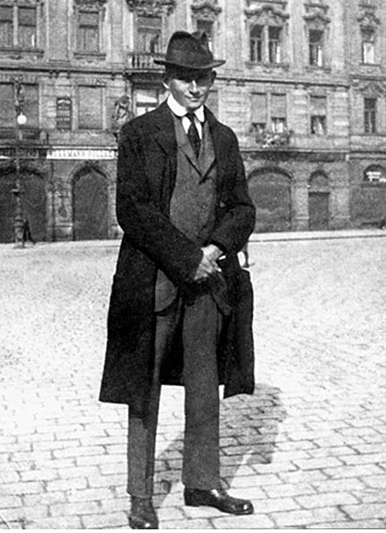 The man opened his door, as if he wanted to discuss the matter, and my feeling was quite the same as that with the man with the rock -- another self-righteous driver looking for someone to relieve his stress on. So, I did has before and went around him. Sure enough, the driver followed as the other driver had done many weeks before. Rather than embarking on another pattern of flee and pursuit, I drove straight to my home, parked my car in my assigned lot under my building, and proceeded to the elevator door. The man followed me into the lot, got out of his car, and stood in my path. I sought to go around him, but he would have nothing of it. As he spoke, I told him in Arabic that I did not understand. Still he refused to yield. So, I stepped up to him in a way that emphasized our difference in size. My goal was to make it very clear to him that I was the bigger of the two, and that it would be unwise for him to continue in his present manner. He got the hint and ran to his car, but rather than driving away he opened his trunk. I stood and watched as he rummaged through it. Unable to find what he was looking for, he closed the trunk, opened the rear door of his car, and reappeared with a crowbar. As he was wearing a soldier's uniform I thought that he might be looking for a gun and began anticipating how I would react. The crowbar brought back memories of the boy with a stick, and having already rehearsed my response I calmly told him to put away his toy. Though it was rather certain that he did not understand my words, my disposition was clear. Do not aggress further and allow me to pass. By this time the man was quite obsessed with his own sense of self-righteous injustice and began appealing to his almighty God, whereupon I smiled, and the spell was apparently broken. For, he spit on the ground and returned to his car. I watched with relief as the little man in his big black car backed out of my lot and drove away never to be seen again.
The man opened his door, as if he wanted to discuss the matter, and my feeling was quite the same as that with the man with the rock -- another self-righteous driver looking for someone to relieve his stress on. So, I did has before and went around him. Sure enough, the driver followed as the other driver had done many weeks before. Rather than embarking on another pattern of flee and pursuit, I drove straight to my home, parked my car in my assigned lot under my building, and proceeded to the elevator door. The man followed me into the lot, got out of his car, and stood in my path. I sought to go around him, but he would have nothing of it. As he spoke, I told him in Arabic that I did not understand. Still he refused to yield. So, I stepped up to him in a way that emphasized our difference in size. My goal was to make it very clear to him that I was the bigger of the two, and that it would be unwise for him to continue in his present manner. He got the hint and ran to his car, but rather than driving away he opened his trunk. I stood and watched as he rummaged through it. Unable to find what he was looking for, he closed the trunk, opened the rear door of his car, and reappeared with a crowbar. As he was wearing a soldier's uniform I thought that he might be looking for a gun and began anticipating how I would react. The crowbar brought back memories of the boy with a stick, and having already rehearsed my response I calmly told him to put away his toy. Though it was rather certain that he did not understand my words, my disposition was clear. Do not aggress further and allow me to pass. By this time the man was quite obsessed with his own sense of self-righteous injustice and began appealing to his almighty God, whereupon I smiled, and the spell was apparently broken. For, he spit on the ground and returned to his car. I watched with relief as the little man in his big black car backed out of my lot and drove away never to be seen again.
I returned to my apartment expecting that I would awake one morning with a flat tire or tail light punched out, but nothing of the sort occurred.
Where would the world be without a sense of vengeance?
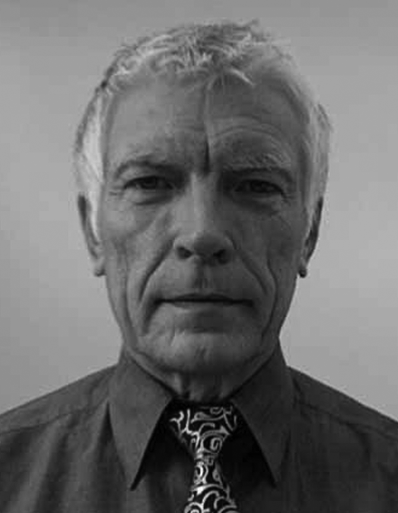 Will the coming year be better than the last? I can only hope so, but I am no longer optimistic. I will check the teeny star on my clouded horizon as soon as the festivities have ended, and start planning again from there. I still have several months before I must depart from Saudi Arabia, but this time will pass quickly, as potential employers are generally slow to respond, if they respond at all, and my resumé appears to excite few employers' interest.
Will the coming year be better than the last? I can only hope so, but I am no longer optimistic. I will check the teeny star on my clouded horizon as soon as the festivities have ended, and start planning again from there. I still have several months before I must depart from Saudi Arabia, but this time will pass quickly, as potential employers are generally slow to respond, if they respond at all, and my resumé appears to excite few employers' interest.
Hopefully, I will be able to find a job before the pending financial crisis hits. There are simply too many ominous shadows lurking in the background to portend a very happy coming year's finish for the world as a whole.
Still, I will try my best, and hope that you will do the same, for this is the most that anyone can ask. There is, of course, the "miracle", but I will leave such to those who believe in the like, and keep my feet on the solid ground of bounded knowledge.
Who knows, maybe I will find a new diving board, for I have yet to master a one-and-a-half somersault and miss the resounding crash of water. It was learning how to springboard dive at the age of 56 that provided me with the necessary diversion to survive my final days in Hong Kong in 2007.
Happy New Year!
Roddy
Credits: The images were taken from the internet from a variety of different sources. I simply googled the names and clicked on "image" search. Only those images for which I could find quality good enough to expand were selected. As a result, there were some people that I wanted, but was unable to include.
My special thanks this year is extended to the personnel department at King Abdulaziz University who has made it possible for me to remain in Saudi Arabia until my residence permit expires. Hopefully I will be able to convert their gesture of goodwill into mine and others good fortune.

Close Window
夏目漱石
Natsume Souseki
1867-1916
Bochan(坊ちゃん)is Natsume's classic work. It first appeared in 1906.
It is a story about a young, passionate school teacher of strong moral fiber and good common sense who finds himself forever torn between Japanese tradition and Western modernization.
It is a story of passive resistance that plays out in a series of events in which Bochan defends himself against unjust victimization with a thorough understanding and perspicacity of his own situation.
I chose it first, because it reflects my own struggle during the year just past.

Close Window
Émile Durkheim
1858-1917
Émile Durkheim is one of the first people that I read in my quest to understand the role of religion in human society.
He introduced me to the notion of the collective spirit and set the tone for much of my later studies in anthropology.
In the end we are social creatures that have an important need for each other's company. Indeed, very few of us, if any, can survive happily in the absence of our fellow human beings.
Much later, I would stumble upon Jean-Paul Sartre, who would describe this dependence on one another as a form of eternal damnation.
Durkheim is considered by some to be the father of sociology.

Close Window
Bronislaw Malinowski
1884-1942
I was introduced to the work of Bronislaw Malinowski very early in my studies of anthropology at the University of Michigan.
Malinowsky is considered a functionalist, someone who looks to human social organization as a means to satisfy needs that are shared by all human societies.
In its quest to satisfy these needs each society develops its own worldly point of view that is different from that of every other society.
In other words, we should not judge the behavior of another society by the values of our own; rather, by the values of the society in which the behavior takes place.

Close Window
Alfred Reginald Radcliffe-Brown
1881-1955
Radcliffe-Brown and Bronislaw Malinowsky are only two of the many anthropologists whose writings I studied as an undergraduate at the University of Michigan.
In order to understand human social organization one must understand how people relate to one another. At one time kinship was the nuts and bolts of human social order. Who you married, how you interacted with other members of your village, lineage, and tribe -- nearly all aspects of your life -- derived from family.
I chose Radcliffe-Brown because his writing were my first introduction to the importance of kinship.
Close Window
Marshall Sahlins
1930-Present
Marshall Sahlins probably opened more doors for me about the nature of human society than anyone whom I have met. Certainly it was because of him that I took enough interest in my studies to be able to graduate.
It was under his guidance that I began my studies in social evolution, came to the conclusion that all notions of god were the result of human creation, and began taking an interest in the collective as a source of human value.
It was also he who introduced me to the work of Leslie Whitel, and I began thinking about the evolution of human intelligence.

Close Window
Leslie White
1900-1975
It was through the work of Leslie White that I learned about the sign, the symbol, and the nature of abstract thought. Further studies in physical anthropology, anthropological linguistics, and much later the history of the German language provided me with what I needed to develop my own theory of the development of the human intellect.
The human intellect, like language, is something that we acquire; it is not something with which we are born. It is a social phenomenon that develops over time and is passed from one generation to the next. Without memory and experimentation it could never be acquired.

Close Window
Ludwig von MIses
1881-1973
Ludwig von Mises was born in the Austrian-Hungarian empire, and like so many German speaking Jews of some renown he fled Europe to the United States under the Third Reich.
Perhaps his best known work is Theorie des Geldes und der Umlaufmittel.
Upon my return from the United States in mid-spring I downloaded the original and read it in its entirety. It provides excellent insight into the history and role of money in society and distinguishes clearly between real money (Geld) and other media of exchange such as the US dollar, Japanese Yen, and Euro (Umlaufsmittel).

Close Window
Albert J. Nock
1870-1945
In 1935 Albert Nock published Our Enemy, the State. In his book he distinguishes well between government and the state and makes a strong case for only negative intervention on the part of government. He further identifies clearly between politically and economically acquired wealth, as well as state and social power. Whereupon, he concludes with good justification that the state is a parasite that serves others only to better serve itself, and that its continued growth ultimately leads to the destruction of society.
His repugnance for Volk goes quite beyond my understanding of human social organization, but surely it is a reaction to the abuse of state control that prevailed in his time.

Close Window
Murray N. Rothbard
1926-1995
I never met Murray Rothbard, but many present at the 2014 AER Conference had. Several of them appeared to have known him quite well.
Unlike Ludwig von Mises and Friedrich Hayek, Murray Rothbard is American bred. I highly recommend his book entitled A History of Money and Banking in the United States: The Colonial Era to World War II.
In the absence of history it is difficult to understand where we are today. The economic models proferred by mainstream economists simply cannot tell the story and are often little more than intellectual chess games with little meaning or use beyond those who take an interest in them.

Close Window
Thomas J. DiLorenzo
1954-Present
In attendance at the 2014 AER Conference was Thomas DiLorenzo, the author of Hamilton's Curse: How Jefferson's Arch Enemy Betrayed the American Revolution. And, What It Means for Americans Today
Having seen the image of Alexander Hamilton on the face of the US10-Dollar note for all of my young adult life, I took it for granted that I was looking at a great man. Indeed, there was nothing in any of my grade school history books that would have suggested otherwise.
I can only recommend to everyone interested in the history and future of the United States to read his book.
Close Window
Thomas E. Woods, Jr.
1972-Present
Thomas Woods is a nice guy with five daughters. He is also the author of The Politically Incorrect Guide to American History. I read this book with a flashlight during my 2012 Liberty Trek across the United States.
Thomas Woods is passionate about his work and often does not bother with opposing points of view as a result. This said, he is also an accomplished historian and his interpretations are well-founded in the facts that he uncovers.You can learn a lot from him about the history of the United States and the meaning of liberty.
He even hosts a website to assist you.

Close Window
Friedrich August Hayek
1899-1992
Friedrich Hayek was a student of Ludwig von Mises. I know him best for his advancement of Von Mises' work on the business cycle and his notes on the denationalization of the world's money supply. He was also an outspoken critic of socialism.
I learned about Friedrich Hayek through the work of Roger W. Garrison and Jesús Huerta de Soto.
It was my inability to understand well Hayek's famed -- or infamous, depending on one's perspective -- triangle that caused me to perform my own research on the role of capital and sound money in general equilibrium theory.
Close Window
Guido Jörg Hülsmann
1966-Preset
I have never met Guido Hülsmann, but I have corresponded with him over the net. Further, I expect someday to make his acquaintance.
In his book The Ethics of Money Production I learned about the fallacy of the "deflation demon". I also came to understand the need for sound money and the absence of government control of our nation's money supplies.
If money is considered dirty, then it is because of the way its use has been perverted by the estabilshment to fill its own coffers and those of bankers at the expense of ordinary workers and merchants.

Close Window
Jesús Huerta de Soto
1956-Present
I am not really sure what attracted me to Jesús De Soto, but he is responsible for my first, and so far only, formal publication in a journal of Austrian economics.
I have never met him in person, but have watched him on YouTube and find him to be a passionate speaker who is dedicated to his work.I know him best for his discussion of the legal fraud that forms the basis of today's money supply. The first three chapters of the English translation of his monumental work Dinero, crédito bancário y ciclos economicos are well worth reading in this regard.
He puts the Spanish in Austrian.

Close Window
Eugene Silberberg
n.a.
Of all of the people who have influenced by intellectual life, Eugene Silberberg, is personally the most controversial.
He had the special privilege of introducing me to the mathematical models that form the basis of modern microeconomic thought. This gave him an upper-hand on my intellectual development as a professional economist.
Unfortunately, he is also the man responsible for writing the microeconomic prelims that I failed three times. and that caused me to eventually abandon my pursuit of a Ph.D. in economics.
I credit him with having taught me how to formulate a testable hypothesis.

Close Window
Stephen J. Turnovsky
1941-Present
I was a student of Stephen Turnovsky in my final year of graduate school at the University of Washington. I met him quite by accident some 17 years later on the university's campus. At first he did not recognize me, but after shaking hands for several minutes, he finally remembered me as the student who threatened him with a legal battle for unethical admission's policy.
My grudge was never against him, but against the department that he had inherited as chairperson. In fact, he taught me how to build my first dynamic general equilibrium model and is, in part, responsible for my most recent work in economics.

Close Window
Hal R. Varian
1947_Present
Hal Varian's book Microeconomic Analysis (1984) is likely the Bible or Qur'an of many a budding mainstream economist. It takes everything that I learned from Eugene Silberberg about comparative statics and reduces it to a few concisely written pages of easy to understand foumulas.
It also represents the kind of economic analysis that causes most Austrian economists of the Rothbardian school to turn over in their yet dug graves.
I like it for its clarity, brevity, and thoroughness. It is a great reference work -- simply, it was not written with the Austrian school in mind.

Close Window
Keith B. Leffler
n.a.
Keith Leffler is the co-author of "The Role of Market Forces in Assuring Contractual Performance" (1981). He is also my former professor and responsible for my introduction to the economics of law.
It was he who taught me the absurdity of the mathematical gymnastics that forms the basis of much of what is taught in mainstream economics today.
All you really need to know is what one needs to market a good or service -- a unit of account, a method of packaging, and some way to assign risk.
If you have something of value to others and know how to advertise, the market will take care of the rest.

Close Window
Richard Allen Posner
1939-Present
Economic Analysis of Law (1973)
Just before my departure from the University of Washington in 1991 I explored the possibility of changing my discipline from economics to public policy. I soon became acquainted with the work of Richard Posner and spent much of my time in the university's law library.
There i learned that the common law tradition that forms the legal basis for much of the world today is often poorly founded in sound economic principles. It was this period of study that inspired me to challange two fraudulent employers in Hong Kong more than a decade later.

Close Window
Thorsten Bunde Veblen
1857-1929
The Theory of the Leisure Class (1899)
I was an undergrad at Purdue University, the war in Vietnam was still raging, and it was my first time to have been separated from my parents for any length of time. I discovered recreational drugs, free love, alcohol, whole new genres of art and music, and many new ideas about society including those of Thorsten Veblen.
Under the guidance of Michael A. Weinstein I was given a free-hand to study what I wanted. I had only to chose a topic related to political economy and be serious in my endeavor. My desire to become rich began to ebb.

Close Window
John Kenneth Galbraith
1908-2006
American Capitalism (1952) The Affluent Society (1958)
Were I to read the work of John Galbraith again, it would be from a very different perspective. John Kennedy had been assassinated not many years before and Lyndon B. Johnson's Great Society had yet to take its toll on the American social fabric. I was caught up in the social upheaval of the day and was still unable to distinguish between social liberalism and the need for conservative market economic principals.
It were as if I had abandoned the teachings of my father and those of Barry Goldwater. It is a mistake I will never make again.

Close Window
Douglass C. North
1920-Present
The Economic Growth of the United States, 1790–1860 (1961).
In grade school history is taught as a political tug of war between competing political factions led by famous and sometimes infamous people. It is an opportunity for the state to inspire youth to join its ranks in the name of the greater national good.
Douglas North was my first exposure to the history of a nation from a completely different perspective -- a nation of people seeking individually and together its own material satisfaction through hard work, new technology, free market interaction, and an entrepreneurial spirit that succeeded where others had failed.

Close Window
Ronald H. Coase
1910-2013
"The Nature of the Firm" (1938)
Where the writings of Adam Smith teach us the importance of markets, those of Ronald Coase teach us the need to get around the expensive transaction costs that markets entail.
Transaction costs are probably the single most important determinant of market structure. These costs create barriers that prevent trade. Sometimes they are erected intentionally; more often they are the result of naturally occurring market conditions that can be eliminated through a variety of means including technological innovation, a simple reorganization of the means to production, and the elimnation of cumbersome legal codes.

Close Window
Georg Wilhelm Friedrich Hegel
1770-1831
Phänomenologie des Geistes (1807)
While honing my translation and interpretation skills in the French, German, and English languages at the School of Applied Languages in Germersheim am Rhein I was introduced to the writings of Hegel, Feuerbach, and Karl Marx as representative of 19th century German philosophy.
I had read an English translation of Hegel's Phenomenology of the Mind while still an undergraduate at the University of Michigan, and I wanted to read it again in the original. I discovered much more.

Close Window
Ludwig Andreas Feuerbach
1804-1872
Das Wesen des Christentums (1841)
Feuerbach was a student of Georg Hegel and represents a crucial link between the teachings of Hegel and Marx.
The break-up of the Christian church in the 16th century initiated great change in the attitude of European intellectuals toward the notion of God. This change was gradual and continued well into the 20th century.
Already in the 19th century, however, Feuerbach had pounded the nail into the Christian coffin for many. He showed God must be the creation of human beings and not vice versa.

Close Window
Karl Heinrich Marx
1818-1883
Contribution to a Critique of Political Economy (1859)
I wanted to know why the writings of Karl Marx were so attractive to so many. So, I explored his writings in earnest and learned about his theory of historical materialism. Truly, Karl Marx did turn Hegel on his head.
In light of my several years of anthropological study Marx made very good sense. Having been brought up on the West side of the Iron Curtain left me to ponder, though. It was not until I took up the formal study of economics that I had the analytical tools I needed to separate the good, bad, and ugly of Karl Marx and his intellectual comrade Vladimir Lenin.

Close Window
Johann Wolfgang von Goethe
1749-1832
I had conquered the University of Michigan, but not the devastation of my career goal that I had experienced while still in attendance at Purdue University. I was human capital without a preferred use, and the lure of cheap credit and easy to obtain student loans kept me in school. I enrolled in pre-medicine at Michigan State University and soon found myself in graduate school studying German language and literature.
Goethe was a required classic, and it was while studying his work that I met a professor who would change my life with a ticket to Europe as a foreign-exchange teacher.

Close Window
Johann Christoph Friedrich Schiller
1759-1805
Having been raised the son of a Lutheran German immigrant who married a woman -- my mother -- of Dutch-German descent; having, by now, foolishly rejected much of what I had been taught as a child; and having forsaken my own career goals in the process, I was adrift.
Writing did not come easy to me at the time, neither was it an easy task for the young physician Friedrich Schiller. He overcame his writing impediments, and so would I.
He and Goethe were friends.

Close Window
Heinrich Heine
1797-1856
Heinrich Heine was a poet, essayist, and social critic. He was also a former student of Georg Hegel and grew up during Napoléon Bonaparte's destruction of the Hapsburg Dynasty. His outspoken praise for Napoléon resulted in his eventual alienation from German society and self-imposed exile in France.
I first discovered Heine while resident in Germany and was comforted by his caustic social critique and love for historical irony. I had left the United States for Europe during the height of the Vietnam War; it was a time when car bumpers were decorated with the words "America: Love it, or Leave it!"
I was against the war and had left it.

Close Window
Gottfried Keller
1819-1890
I do not remember where and under what circumstances I discovered Gottfried Keller, but once I began reading his work, it was difficult to stop. HIs understanding of human nature and society was extraordinary. He was a moralist and insightful social critic whose short stories captured my imagination more than most.
He was so easy to understand and follow. A great teacher of many whom he never met -- including me.

Close Window
Eugen Bertolt Friedrich Brecht
1898-1956
Bertolt Brecht is another of my favorites. He lived at a time very different from that of either Heinrich Heine or Gottfried Keller.
Brecht was a sharp critic of both church and state, and society in general. Perhaps his most famous work was his 1928 musical, stage, co-production with Kurt Weill, Die Dreigroschenoper (The Three Penny Opera).
I remember him best for his handling (Leben des Galilei) of the life's story of the 17th century physicist, Galileo Galilei.
His work has been translated into many languages.

Close Window
René Karl Wilhelm Johann Joseph Maria Rilke
1875-1926
Simply, a very gifted poet. He hardly wrote a poem that I could not enjoy.

Close Window
Heinrich Theodor Böll
1917-1985
Heinrich Böll was a contemporary author.
I know him best for his novels about pre- and postwar Germany.
Works that come readily to mind are Der Zug war pünktlich (1949), Billard um halb Zehn (1959), and Ansichten eines Clowns (1963).
He became very popular in his own day, as he wrote in a manner that was easily understood about his own time.
Böll was also a stiff critique of the Catholic church.

Close Window
Günter Grass
1927-Present
Günter Grass is a contemporary German author who grew up in Danzig. He fought in WWII, was wounded, and eventually imprisoned in Bayern by the Amis after the war.
It is only because of his work Katz und Maus (1961 - Cat and Mouse) that I could muster the courage to read his Nobel prize winning Die Blechtrommel (1959 - The Tin Drum).
Günter Grass holds no punches, as he is as down-to-earth as he is esoteric. He is not the much lighter read of Heinrich Böll.

Close Window
Jean-Paul Charles Aymard Sartre
1905-1980
Jean-Paul Sartre is hailed as an existentialist. I know him as the author of such works as La nausée (1938), Les mouches (1943), and Huits clos (1944)
He was a prolific writer who laid the responsibility for human action at the foot of the individual whom he believed to be ultimately responsible for his own code of ethics and behavior.
In his work Huits clos he depicted Hell as a group of three people.
Unlike other author's that I have read he often appeared to hold humanity in contempt.

Close Window
Simone Lucie Ernestine Marie Bertrand de Beauvoir
1908-1986
Like Sartre, Simone de Beauvoir emphasized the individual, but she did it in a way that was more engaging.
Once you get Sartre's message you are finished. Reading his drama is like reading philosophy.
In contrast, you can read Simone de Beauvoir over and over, and each time walk away with something new.
I read De Beauvoir's L'invitée (1943) and Les Mandarins (1954) twice each.
Then too, I know Sartre more for his theatre than his prose.

Close Window
Albert Camus
1913-1960
Albert Camus was my gateway to North Africa.
He wrote at the same time as Sartre and De Beauvoir, but he wrote about a completely different part of the world.
His works that I remember best are L'étranger (1942) and La peste (1947).
I am only familiar with his prose. His work was a way for me to acquire the French language and learn about the French colonization of Africa.
When I was living in France, nearly all of my acquaintances were French speaking Africans, and my best French friend was a pied noir.

Close Window
Frantz Fanon
1925-1961
Les damnés de la terre (1961)
My path to economics was long an arduous. It began with a desire to acquire money and is ending with the knowledge of how money is used by others to satisfy that desire.
I began my academic career in engineering, from there I moved to anthropology. After a brief immersion in the natural sciences I turned to German and French language and literature. Always lurking in the background was political economy.
By the time I got to Frantz Fanon, it was time to start all over again.

Close Window
Émile Édouard Charles Antoine Zola
1840-1902
Today we speak of soft- and hard-core. Émile Zola and Victor Hugo were softcore. Frantz Fanon was hard. They all wrote of the same dilemma -- economic exploitation through political coercion.
In the days of Zola and Hugo one was careful not to offend as one informed. By the time Fanon was on the scene, you could offend and still get published, as you had a ready and paying readership.
My favorite works of Émile Zola are L'assommoir (1876) and Germinal (1885).

Close Window
Victor Marie Hugo
1802-1885
Surely Victor Hugo's Les Misérables (1862) is on the same level as Leo Tolstoy's War and Peace.
Just as I have twice read De Beauvoir's Les Mandarins, so too have I read Hugo's Les Miserables more than once.
Great authors know how to interweave a story in such a way that they send a variety of messages at the same time. It is easy to understand how these works have become classic literature.
As Les Misérables has been turned into a movie I will not tell about it here.

Close Window
Marie-Henri Beyle (Stendahl)
1783-1842
Le rouge et le noir (1830)
If I were to translate this book title into English, I would write Church and State: A Tale of Ambition, for it was only through the church or the land-based aristocracy that one could rise in French society in the late 18th and early 19th centuries.
The merchant state was still not fully developed and the French noble class still held most of the reigns -- this, despite, Napoléon's destruction of the Hapsburg dynasty.
As the story's protagonist was not of noble origin, there was only one path left open -- the Church.

Close Window
جبران خلبل جبران
Gibran Khalil Gibran (1883-1931)
I do not know why the The Prophet (1923) became popular in the US in the late 70s and early 80s. Perhaps it was the marriage of Princess Noor to the King of Jordan in 1978 and her conversion from Christianity to the Muslim faith.
The book was given to me as a gift. At the time I did not relate the title to the Prophet Mohammed. Perhaps the book was given as an enticement to adopt Islam. If so, the giver did not understand my rejection of Christianity.
In the end, it is very good poetry that expresses sentiments of love and alienation by a Lebanese emigrant who never rejected his Lebanese nationality.

Close Window
Franz Kafka
1883-1924
It is an usual way to end my exposé of personal intellectual development, but it summarizes quite well my current social predicament.
Franz Kafka is the Salvador Dali of German literature. His work is filled with the absurdities of state control and what modern society had already become by the beginning of the 20th century.
My most memorable reads of Kafka are Das Urteil (1916), Die Verwandlung (1916), and Der Prozeß (1925).

Close Window
Roddy A. Stegemann
1949-Present
Age:Date of Birth:
Place of Birth:
Nationality:
Sex:
Gender Preference:
Marital Status:
Name of Spouse:
(Only if applicable)
No. of Dependents:
Highest Degree Received:
Name of Institution:
Year of Receipt:
eMail Address:
Mobile Number:
(Security purposes only):
Please provide a passport-size, color photo. Black and white photos will not be accepted.

Close Window
